It was a 40 minute ferry ride from Kusadasi, Turkey, to Samos, Greece. We experienced culture shock when we docked in Greece, we were definitely in new lands and despite initial excitement, we were not sure we liked it.
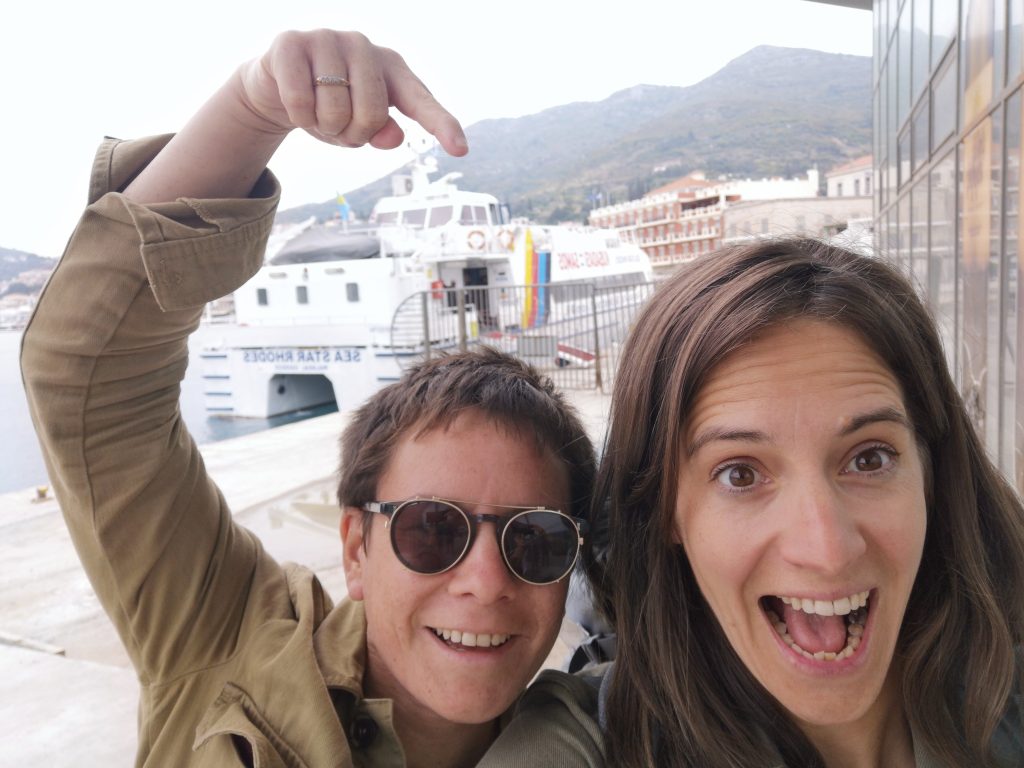
We were ’greeted’ by very aggressive customs personnel who denied usage of any public bathrooms, barked at you to wear masks (mandatory in Greece, not in Turkey) and then ransacked your bags for no apparent reasons. The switch to the Euros from the accommodating Turkish Lira, was also a little sobering.
We had one night in Samos before we would leave the next day for the island of Ikaria, where we were going to WOOFF (Worldwide Opportunities on Organic Farms) or become WOOFFers – volunteer our time for free board and food. We used the day on Samos to recuperate and allow some mourning time for Turkey; the weather was stormy and bleak, so we felt the the scene was set for us to pay our respects.
After a day of lolling we headed to the old town, Vathy where numerous tasty dinner options showed on googlemaps for us to eat away the last of our grief and put our feet firmly on Greek territory. It was not as expected at all, there was no life, then we remembered the earthquake of October 2020. Tragically the place was mainly deserted and crumbling as a result – a modern day example of the power of nature, turning communities into ruins. Devastating.
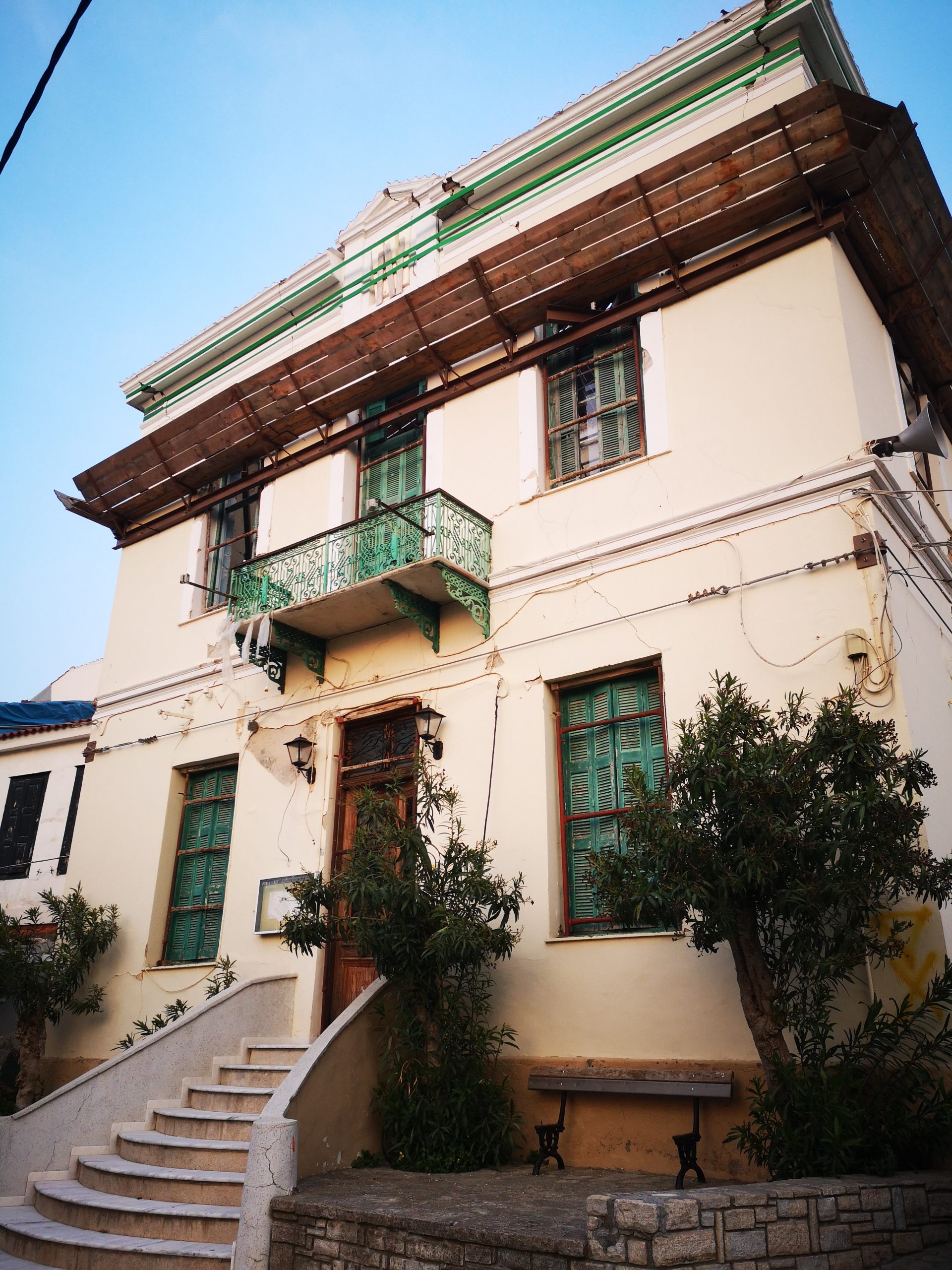
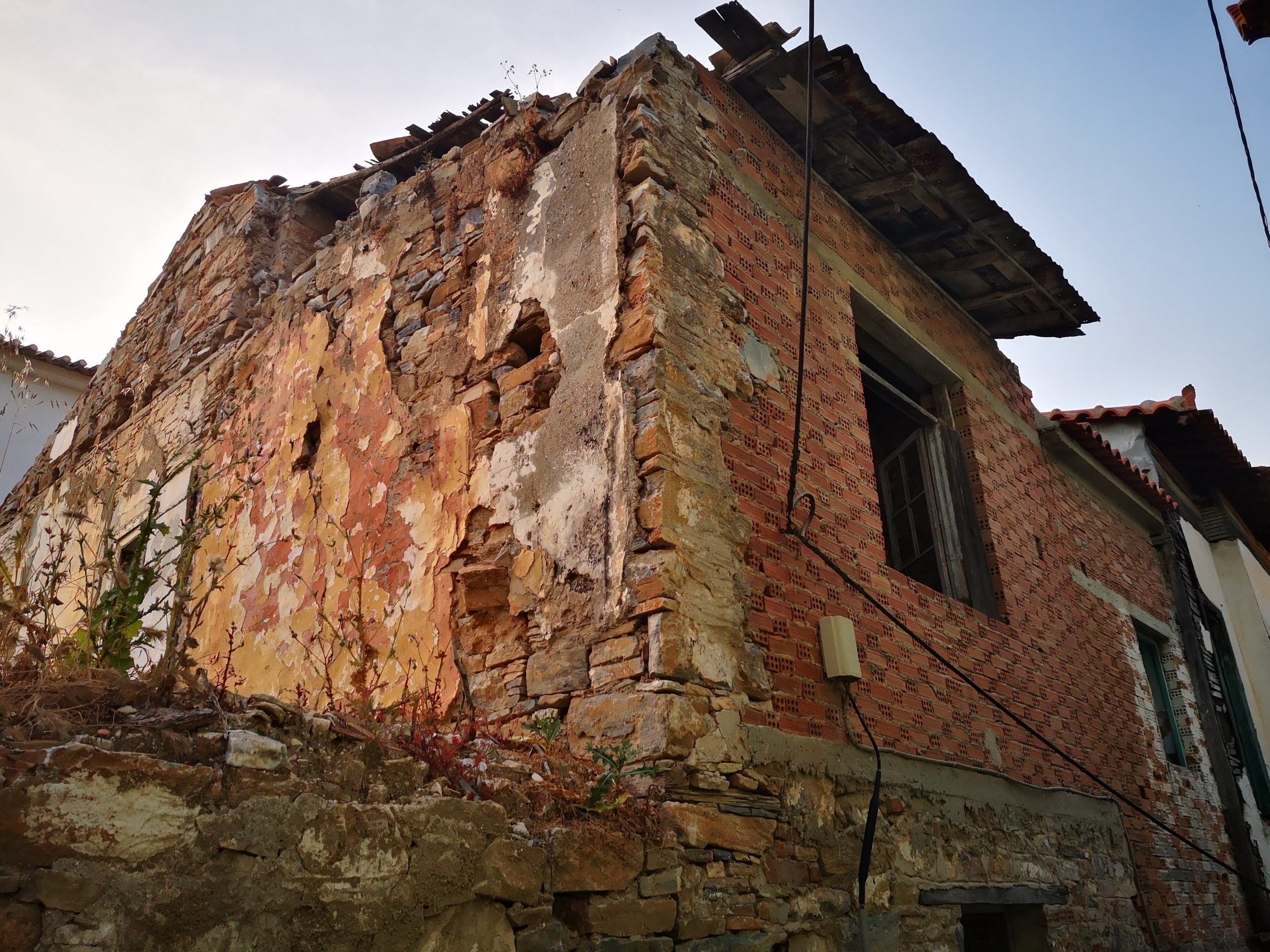
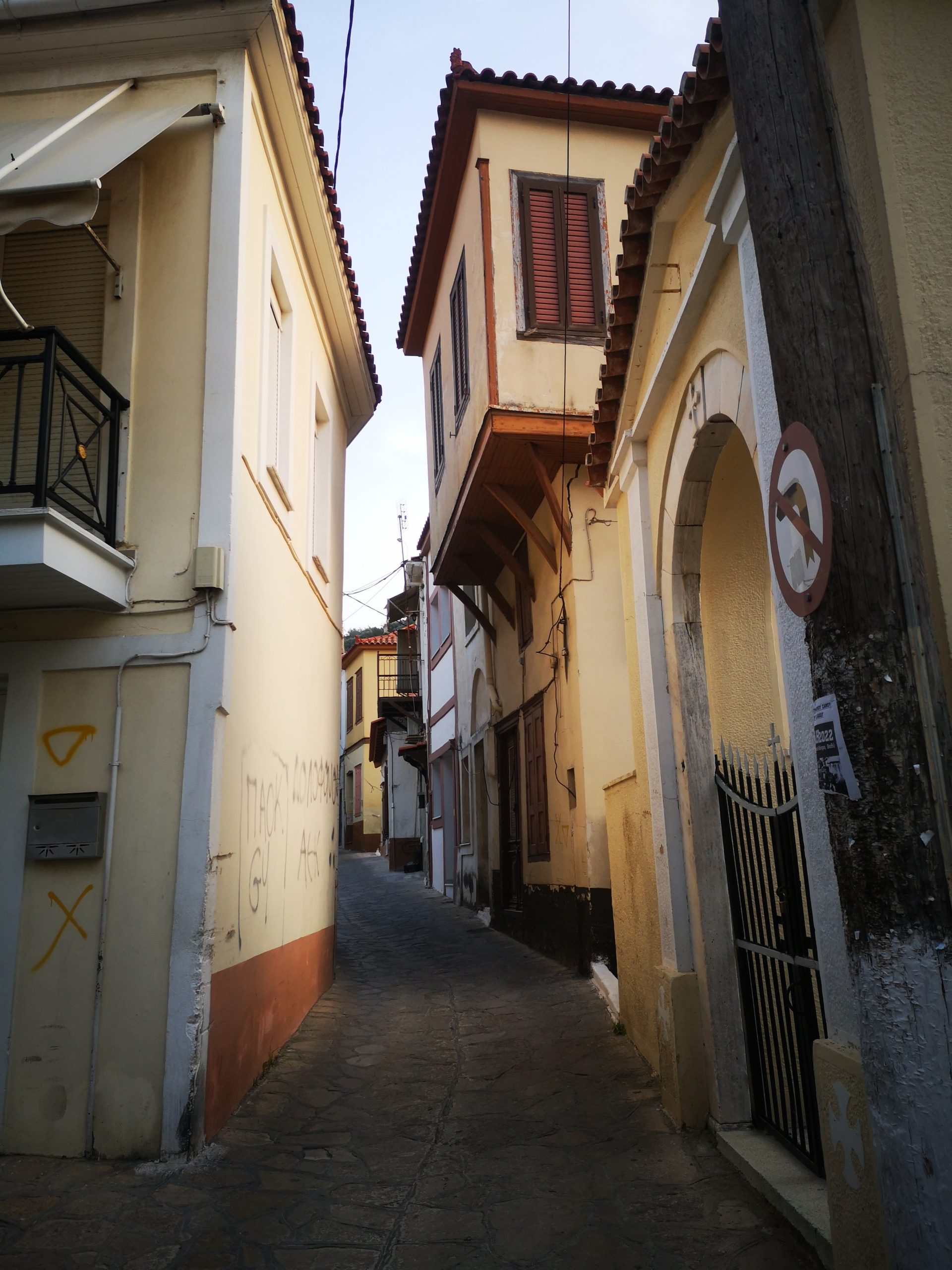
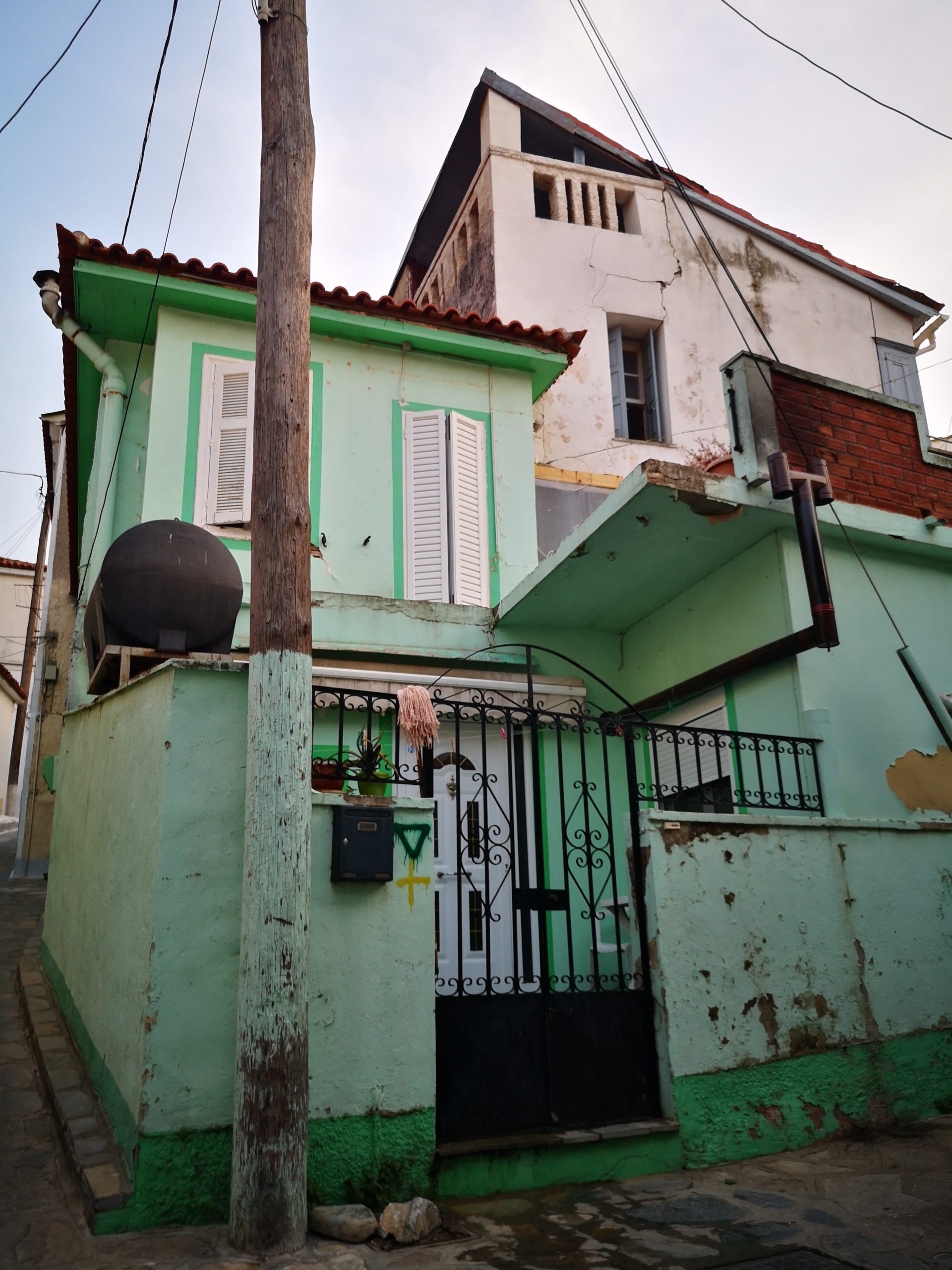
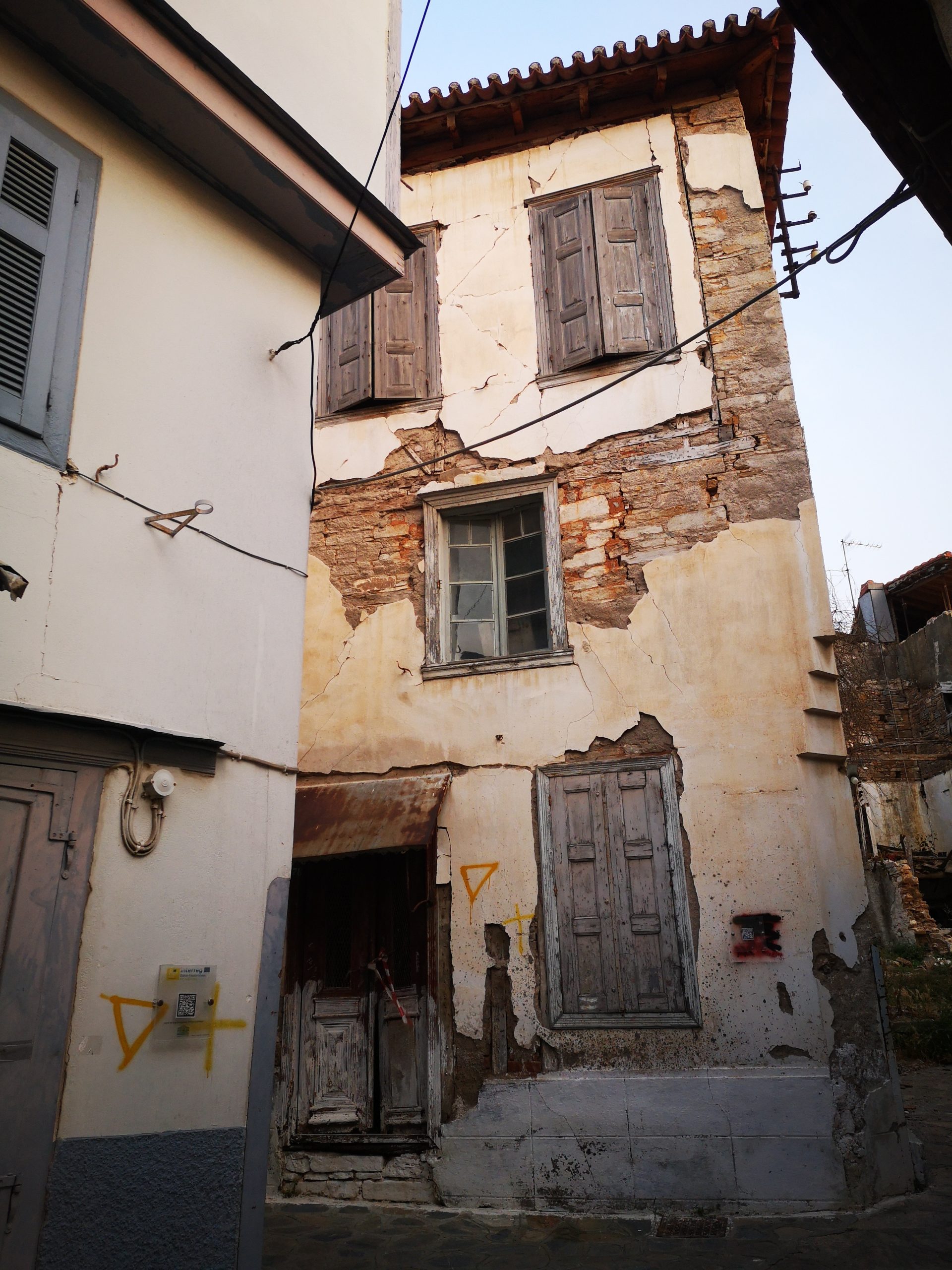
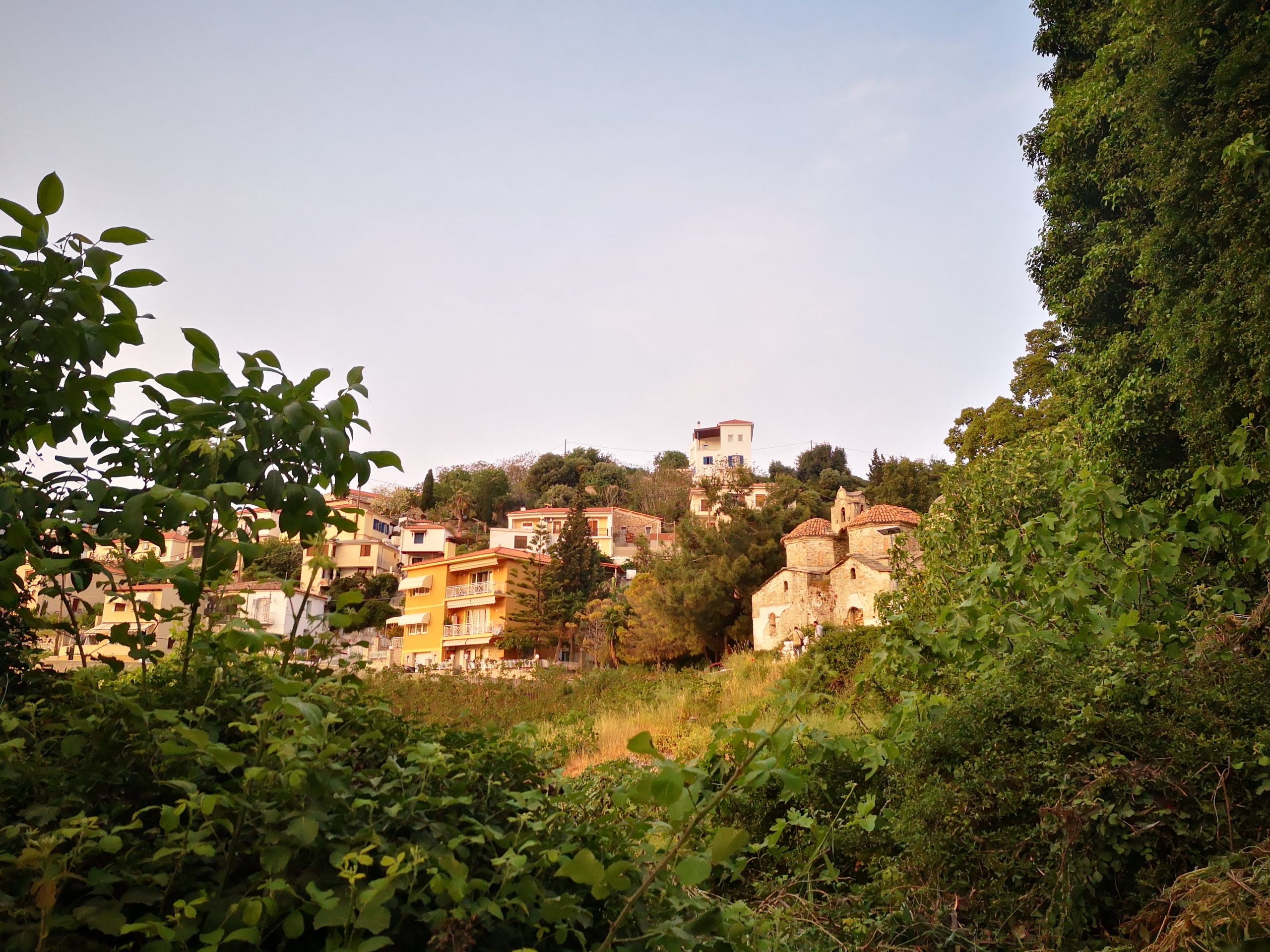
Saddened by the destruction, we strolled back to the newer part of the city and found a Taverna that allowed us to let go of our Turkish grief – the food was deliciously Greek, all would be OK.
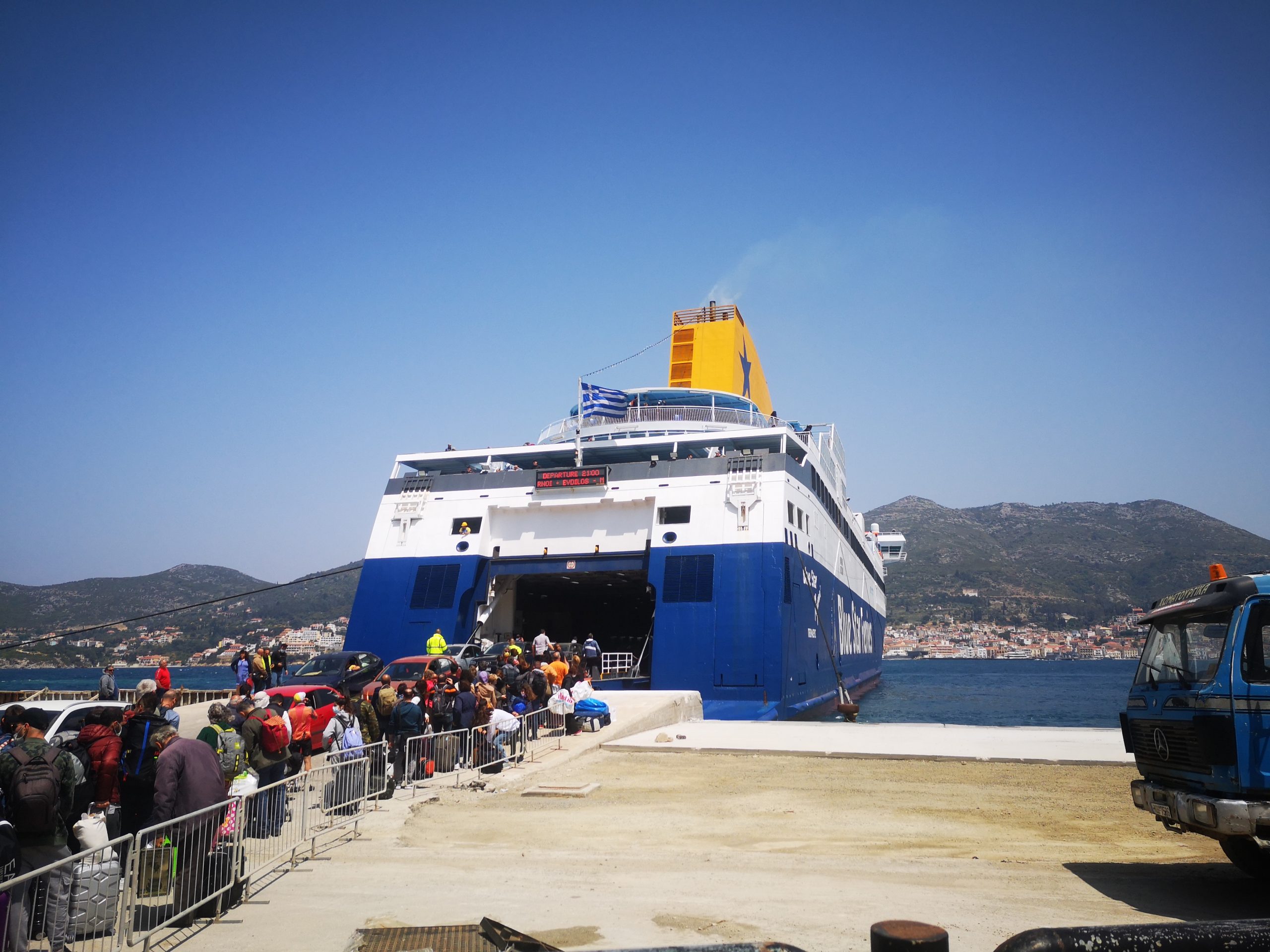
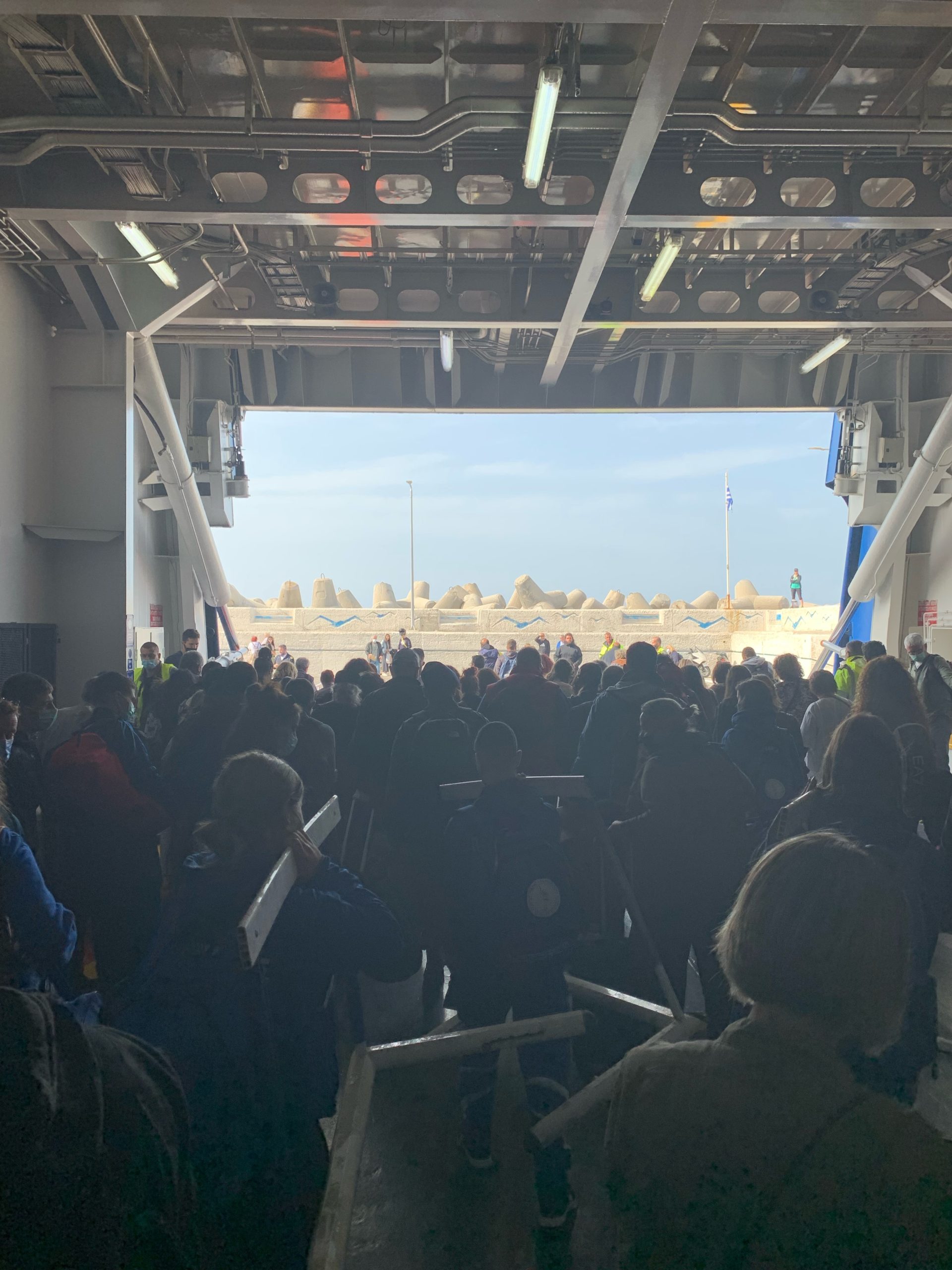
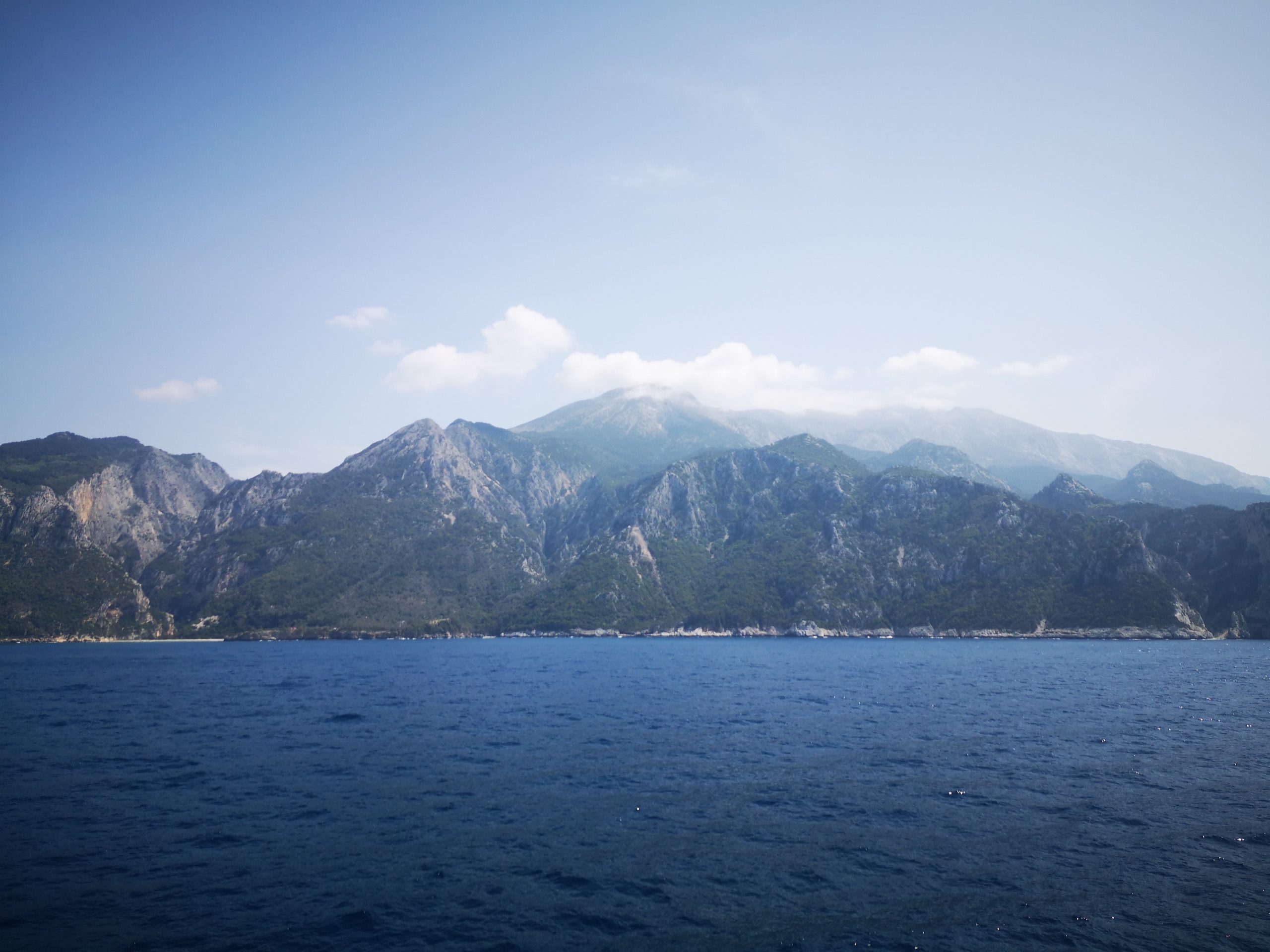
The next day we caught the ferry to Ikaria, to then journey to the EcoVillage of Otopus; we were very excited. Keen to seek out communities living self-sufficiently, we found Otopus on the WWOOFing forum and it seemed to tick many boxes….
We were greeted off the ferry by Carsten, originally from Georgia, USA. He had packed up his life 20 days prior and driven in haste from his then abode Marseille, to Ikaria, specifically to Otopus to seek refuge from the coming days. He was an intense welcome party as he was quite jacked up and clearly disturbed by the future ahead for humanity, short term due to the war in Ukraine and long term due to a coming ice age. We heard all this amongst his ancestry and indeed the history of many/all civilisations over a 40 minute carafe of wine with him. It was intense and a slightly alarming intro to our ‘utopian’ destination that would be home for a week.
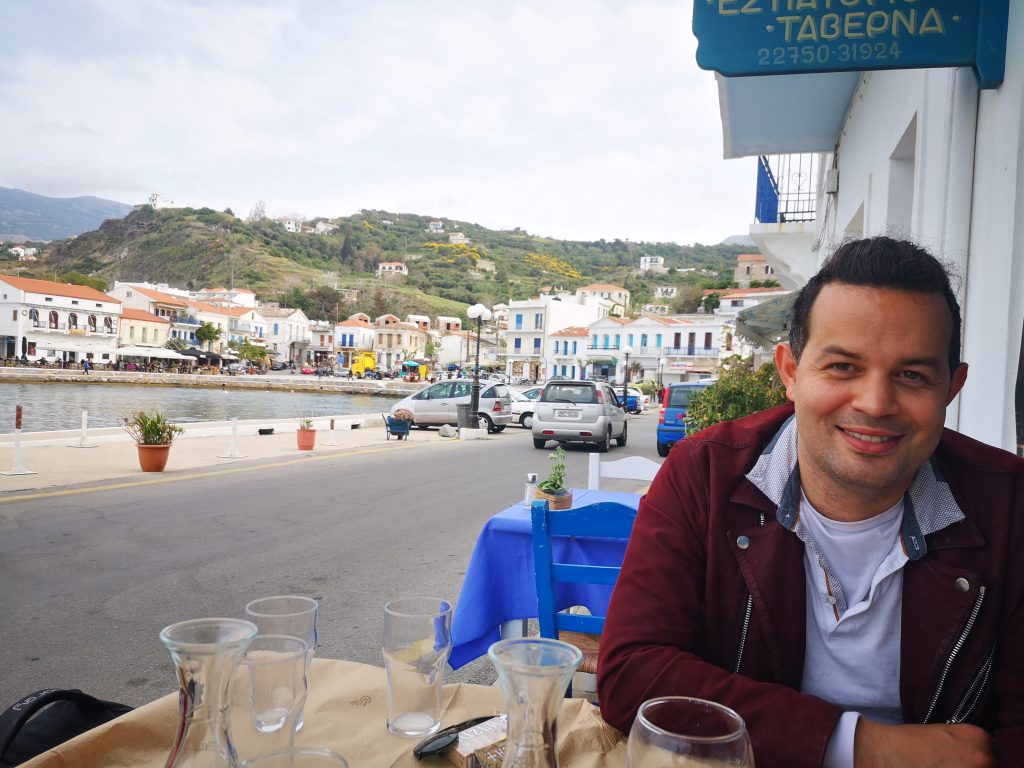
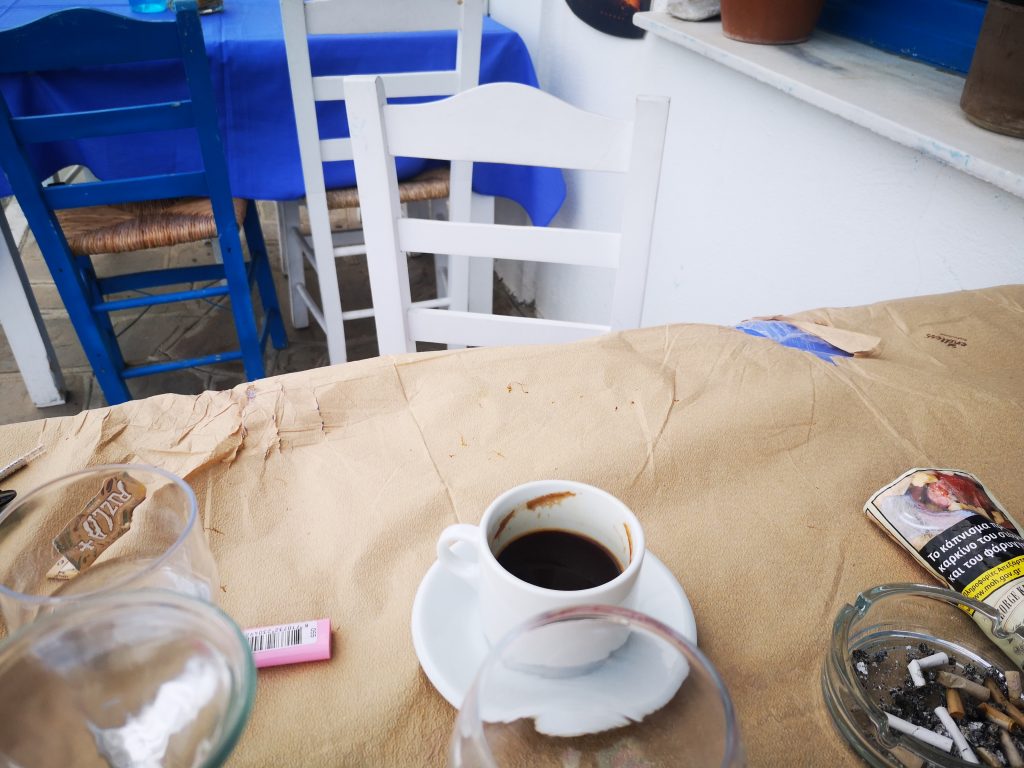
First impressions of Otopus were not as expected – the place was not as developed as we assumed and the community was not as solid. A little taken aback we decided to not stay at Otopus but booked into an Airbnb place, to return each day to lend our hands in anyway we could – turns out we WWOOF in a more middle-aged kind of way.
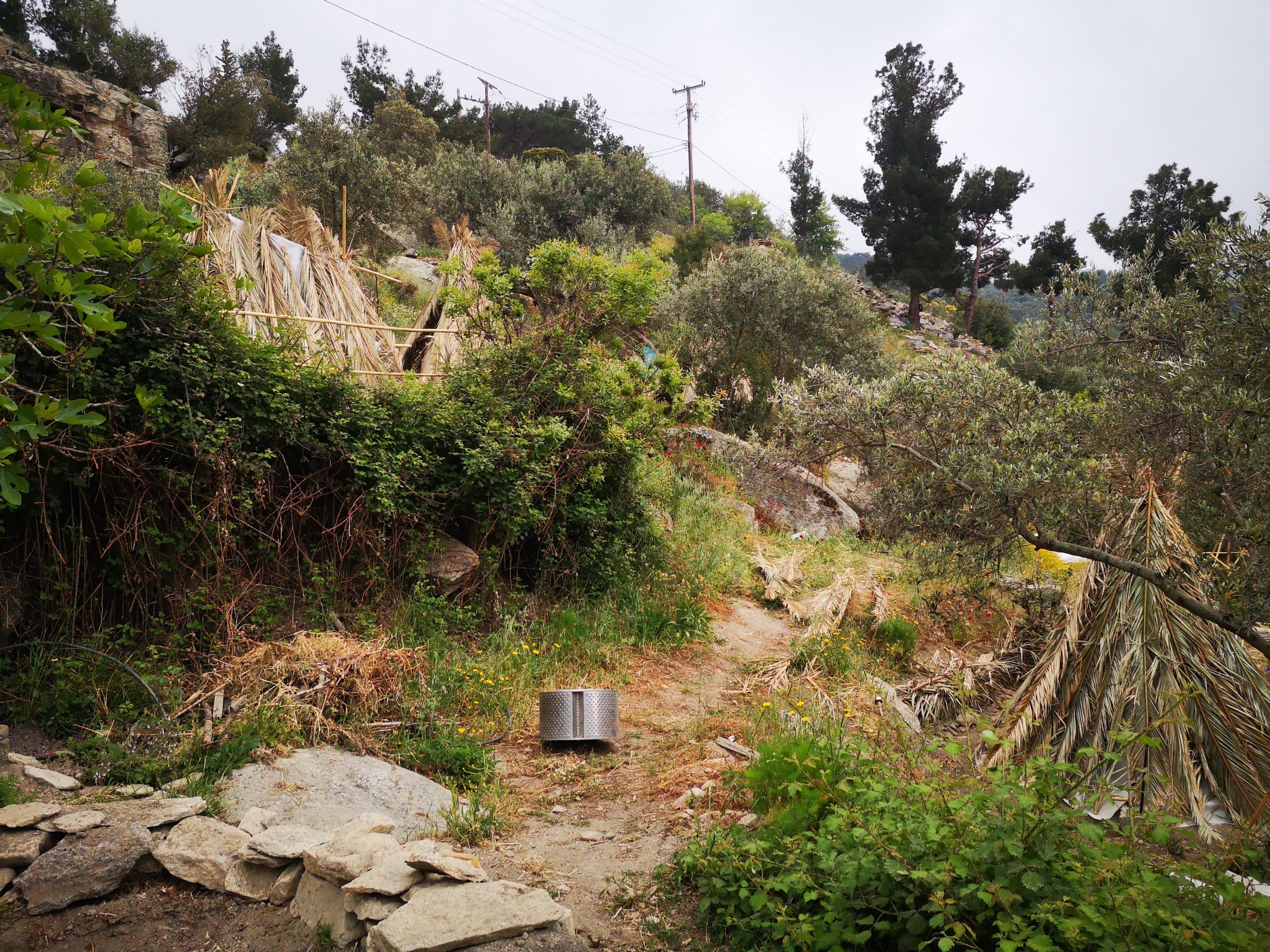
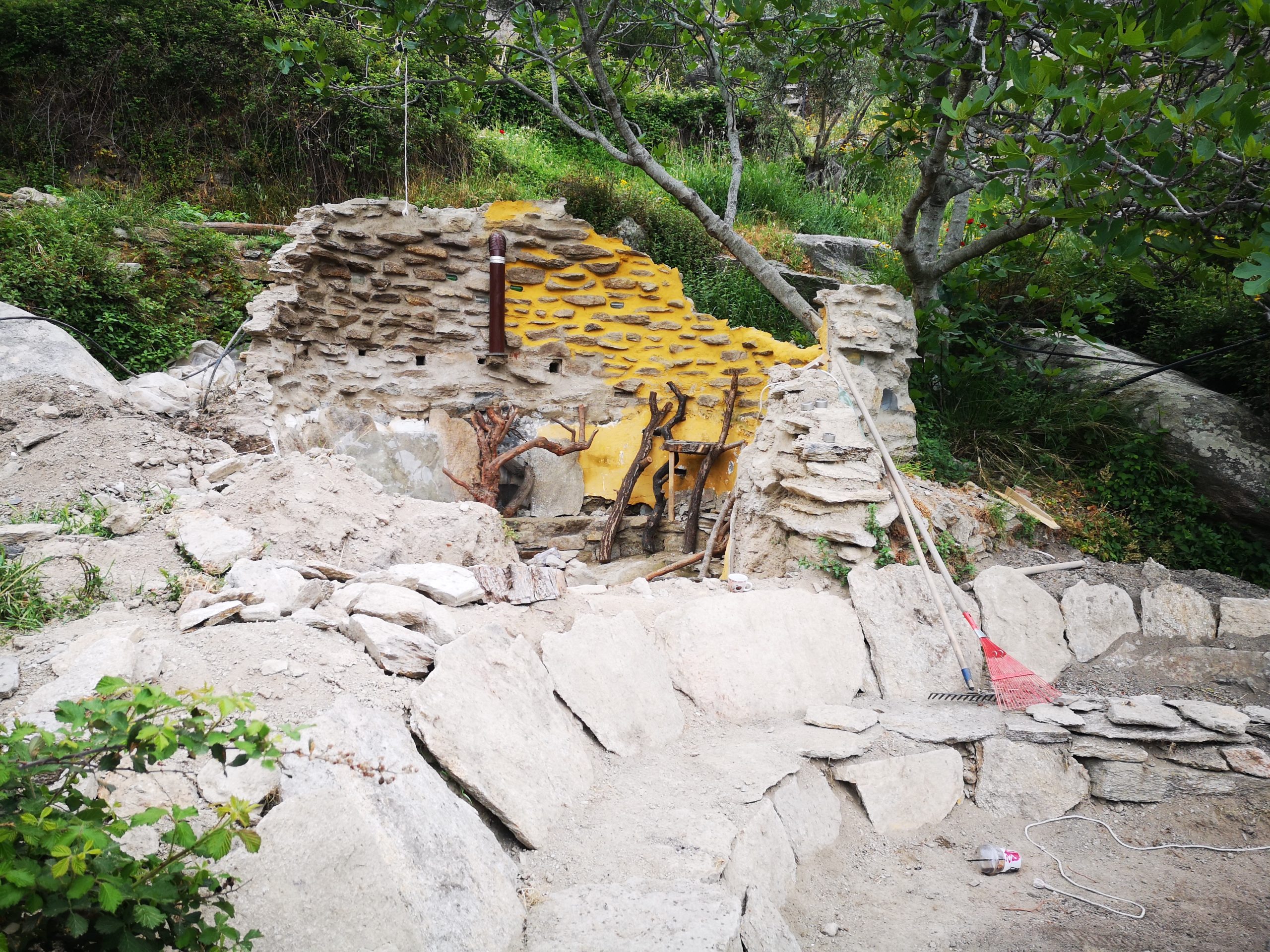
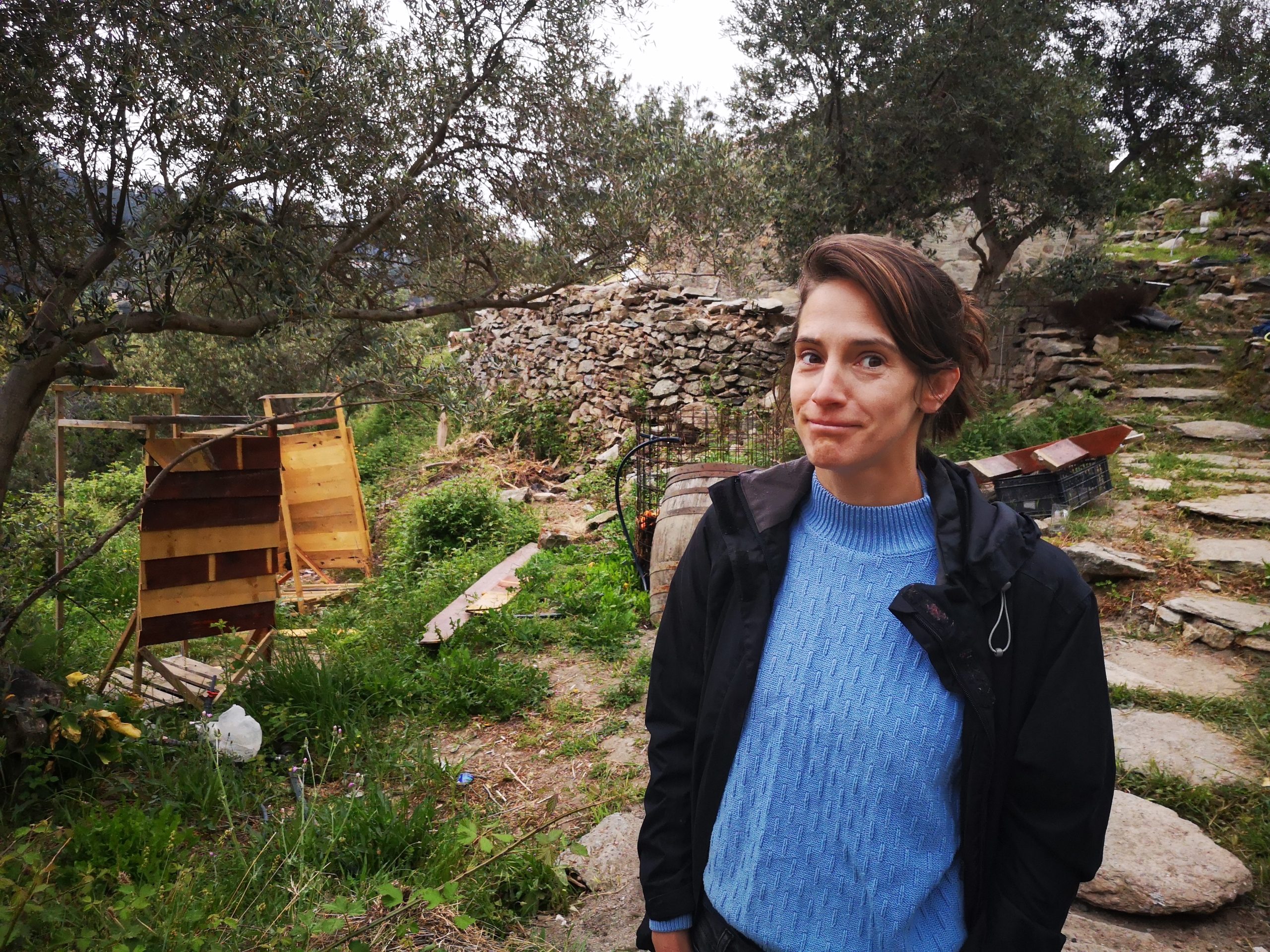
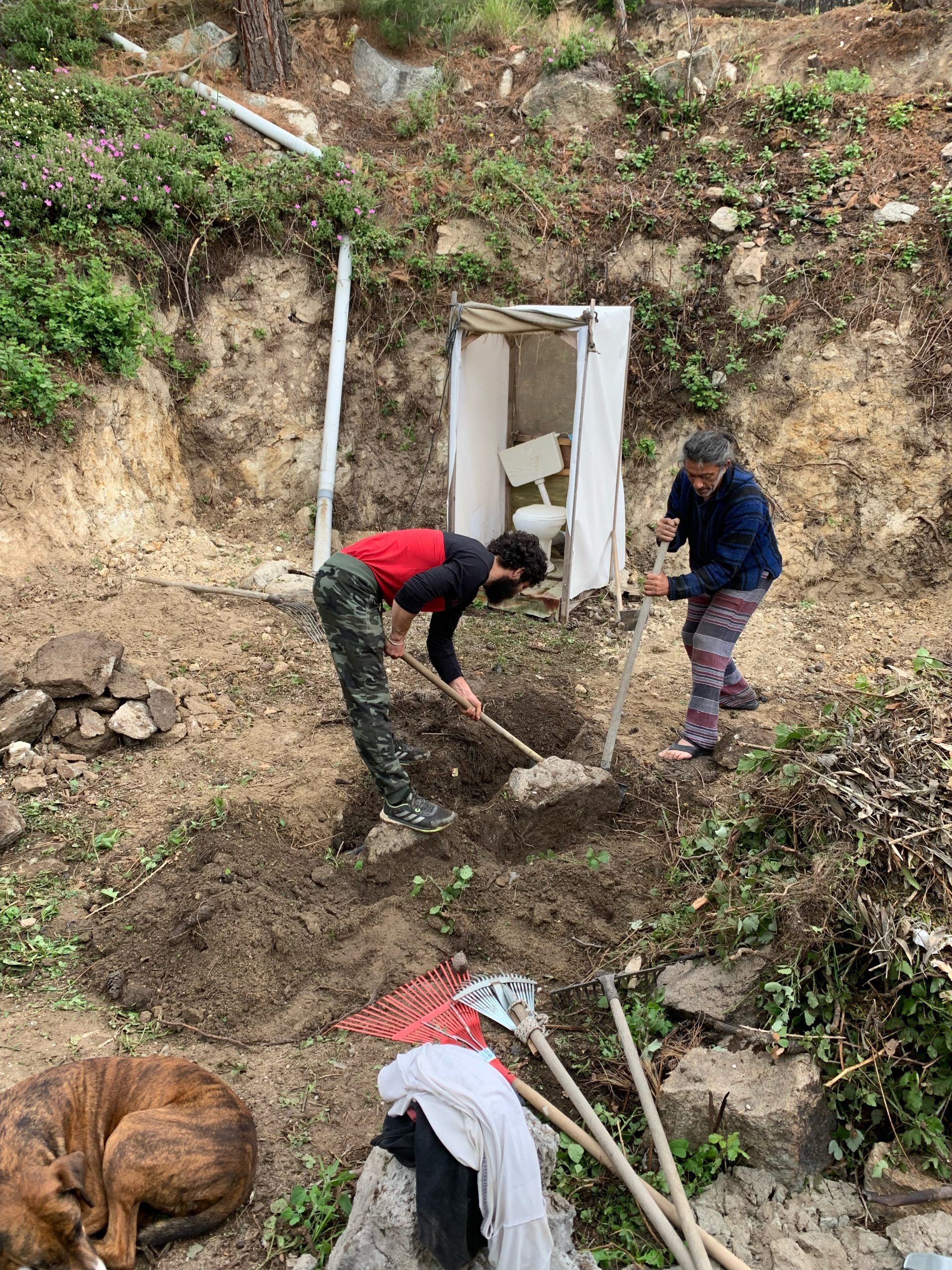
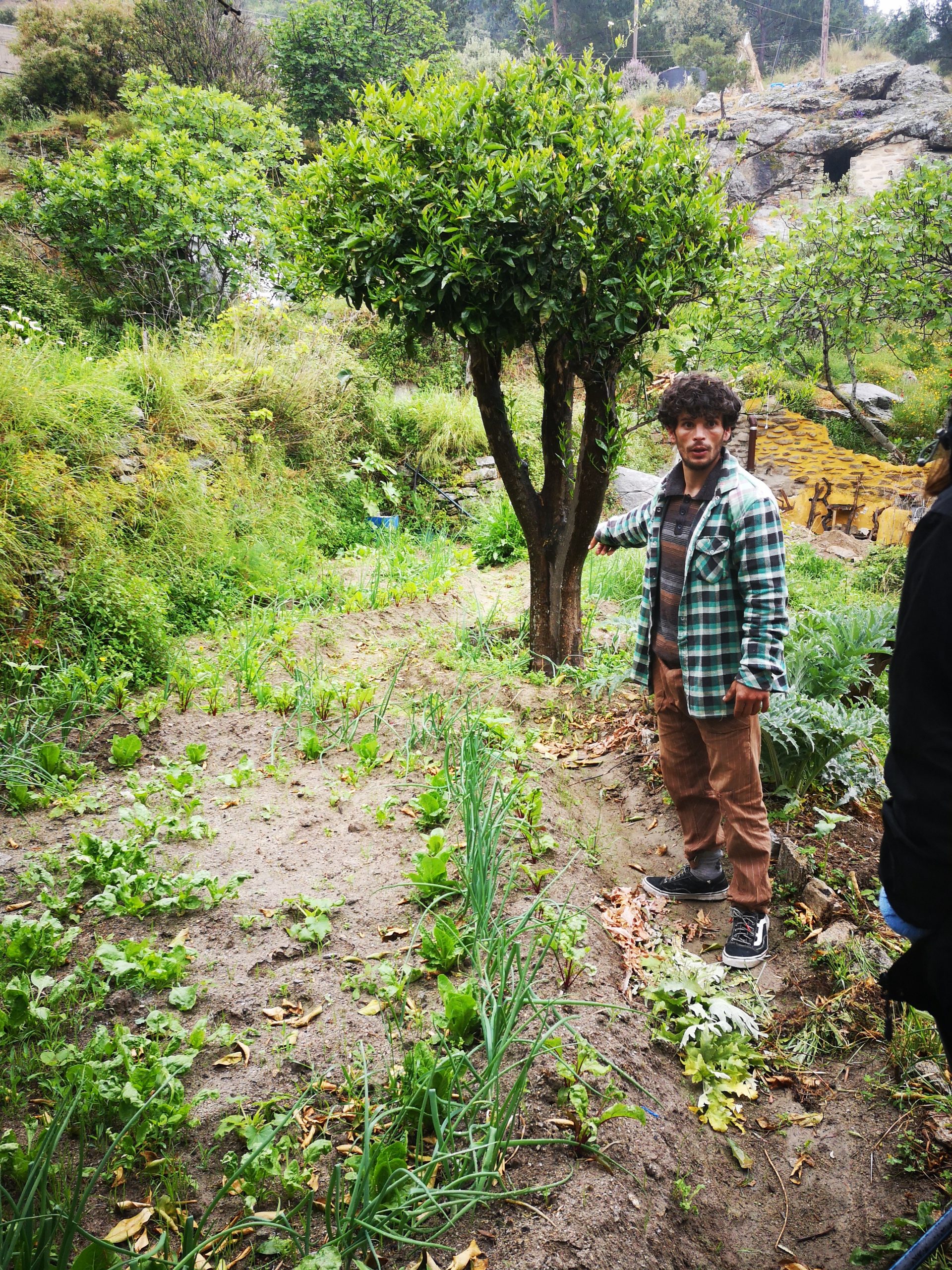
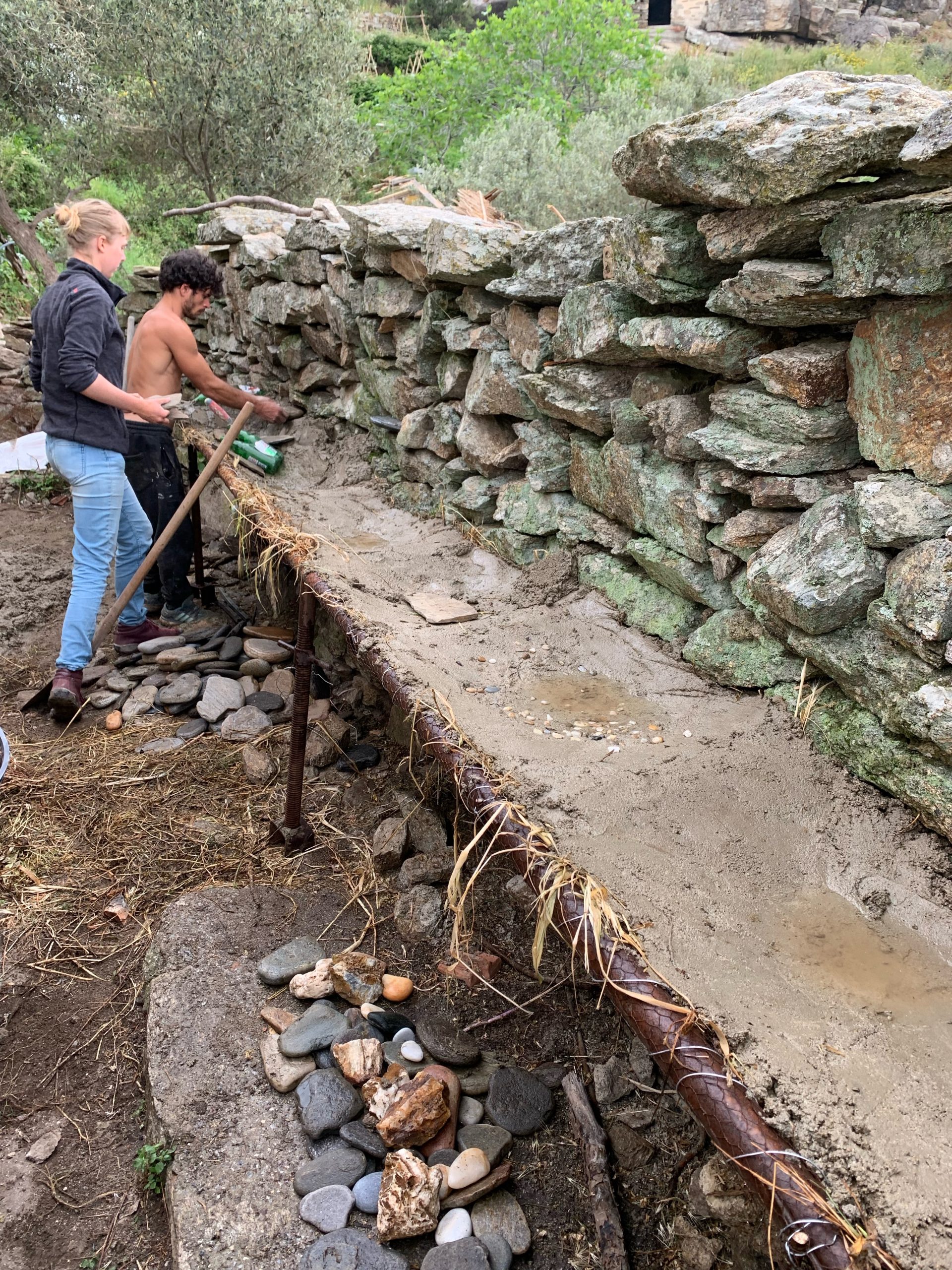
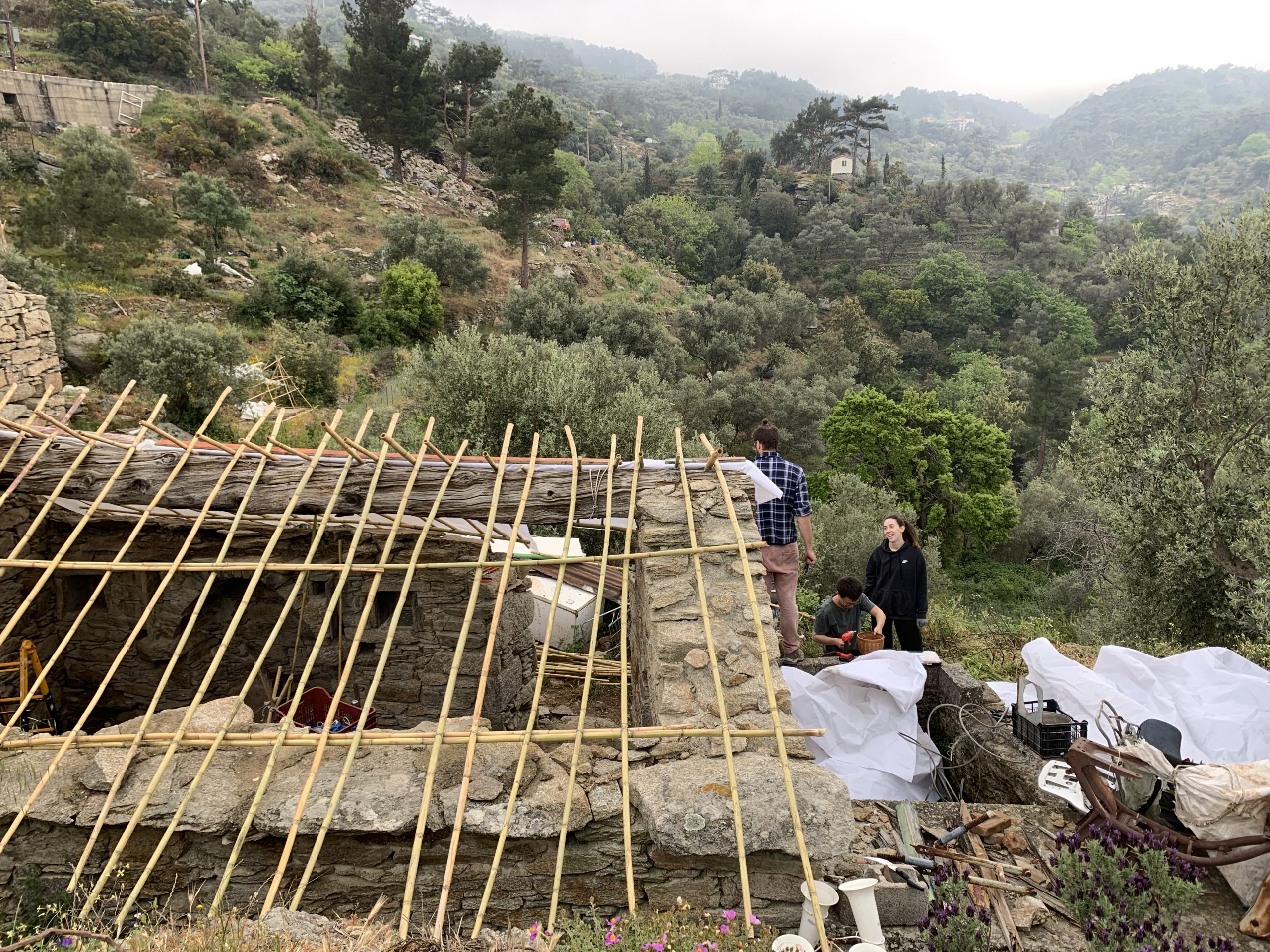
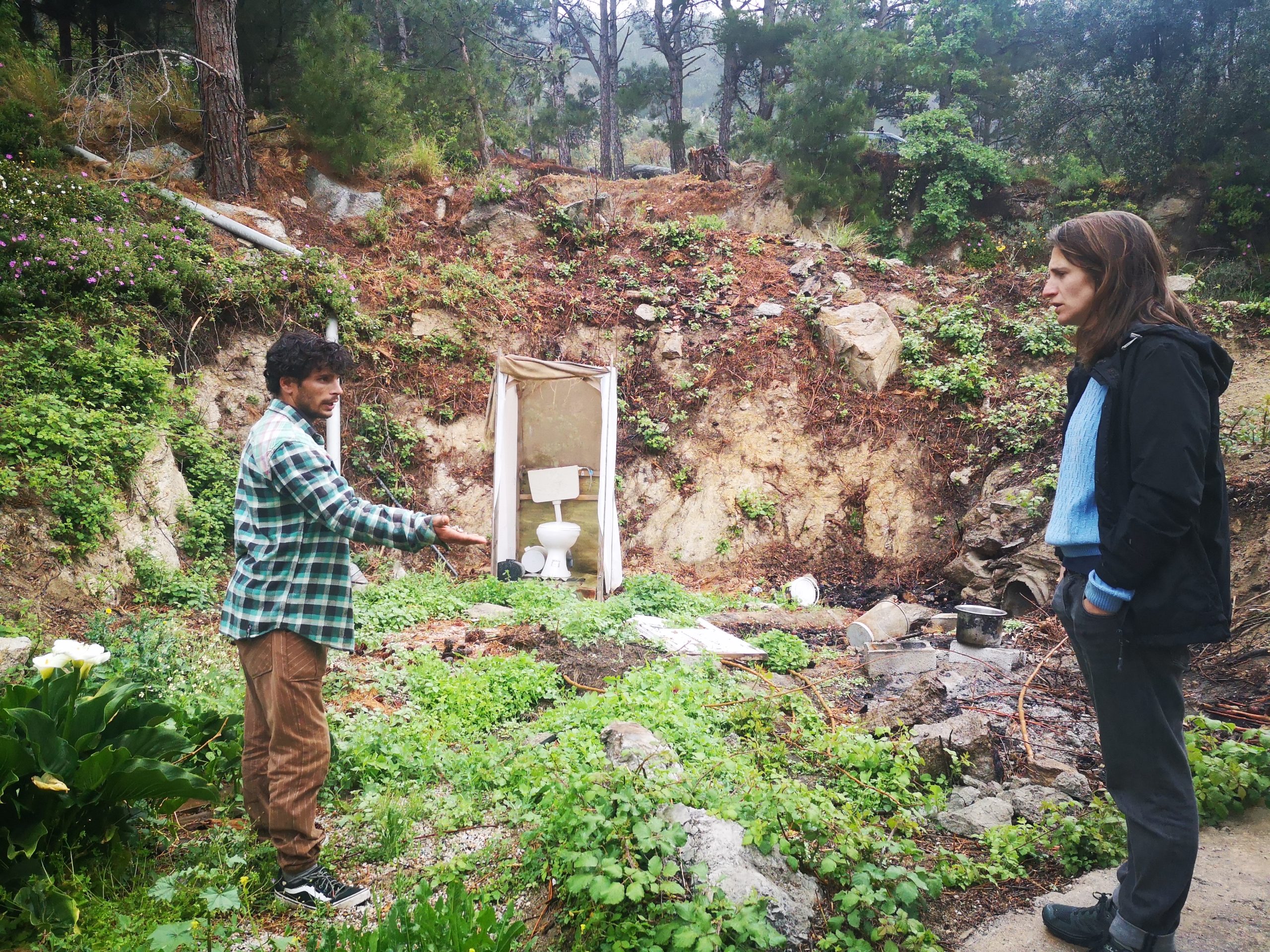
This set up suited us just fine and we hoped they understood. Over the five days we helped at Otopus we began to really care about Jorgos’s vision for his beautiful land and we really enjoyed getting to know the other people there. They had all come to Otopus/the island for varying reasons and from all over the world, but all seeking the same thing; a community to live in.
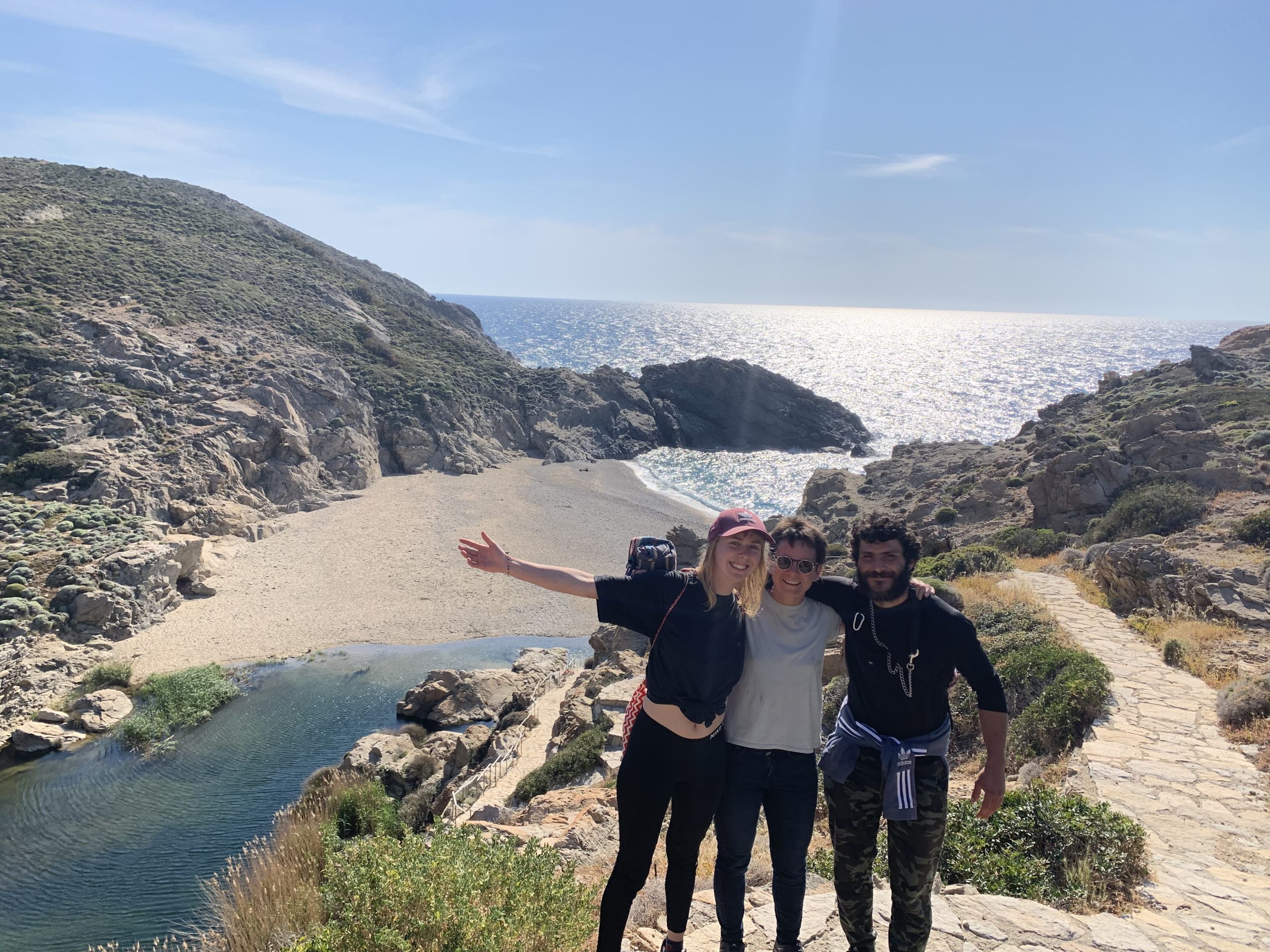
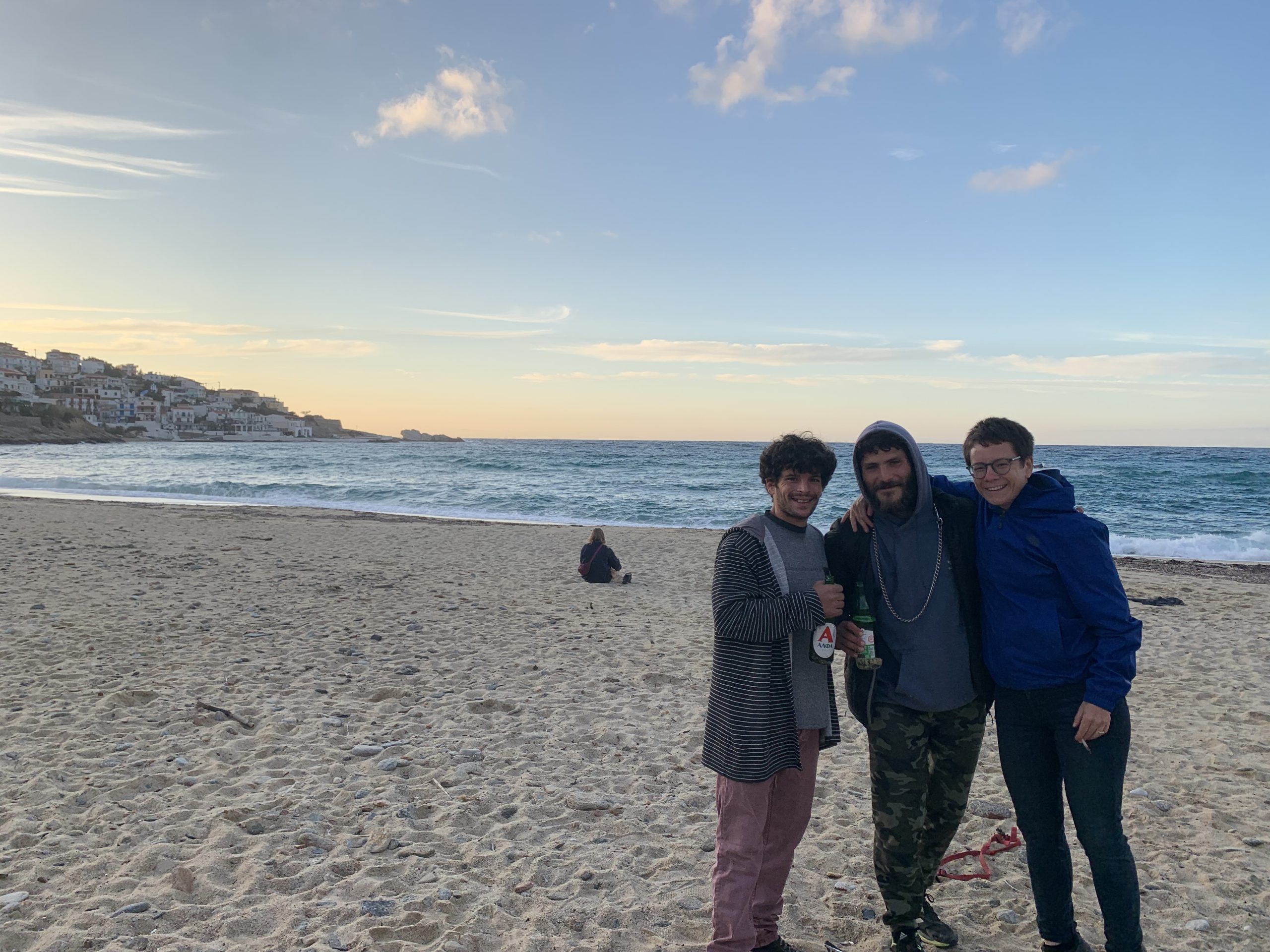
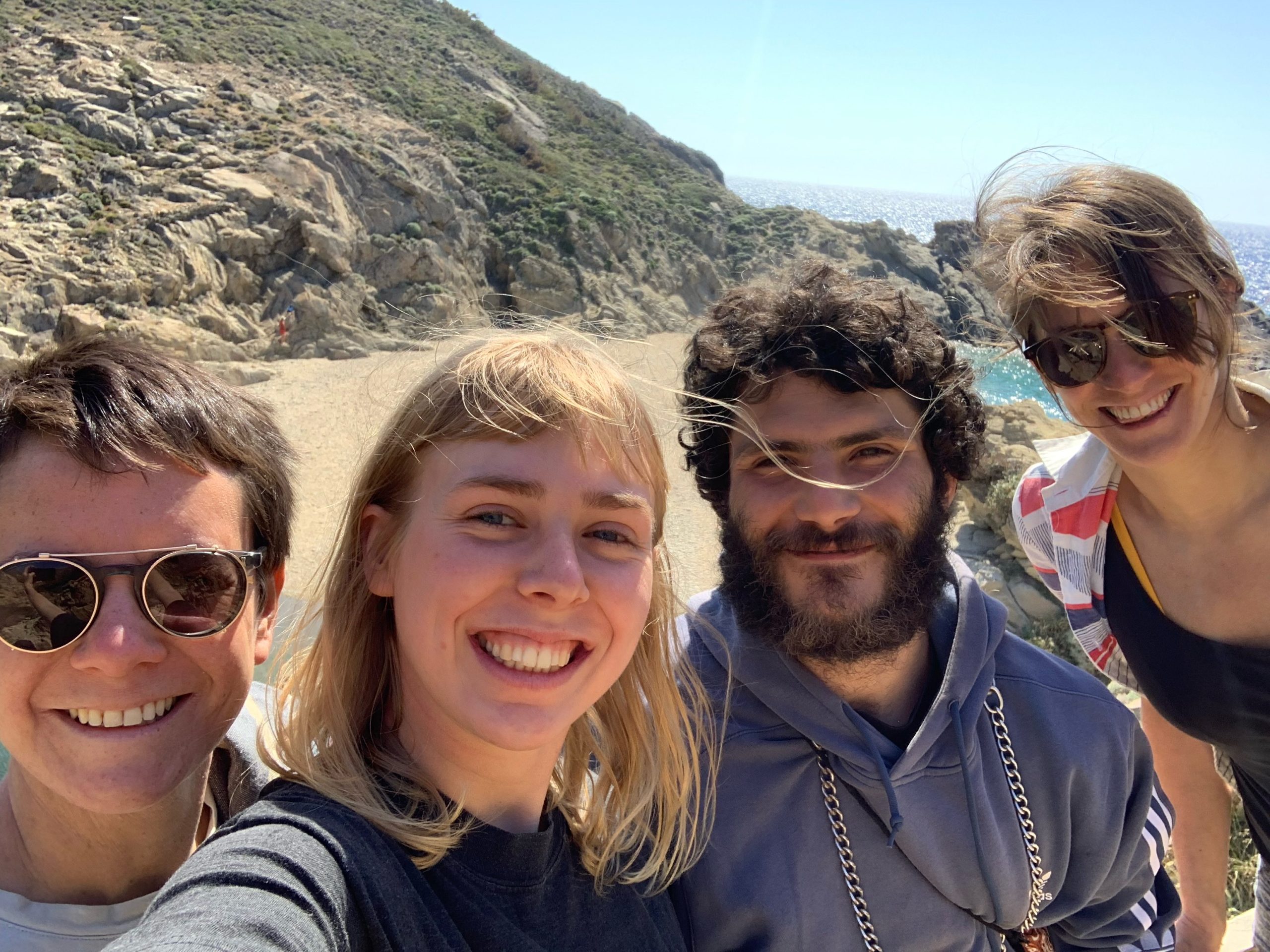
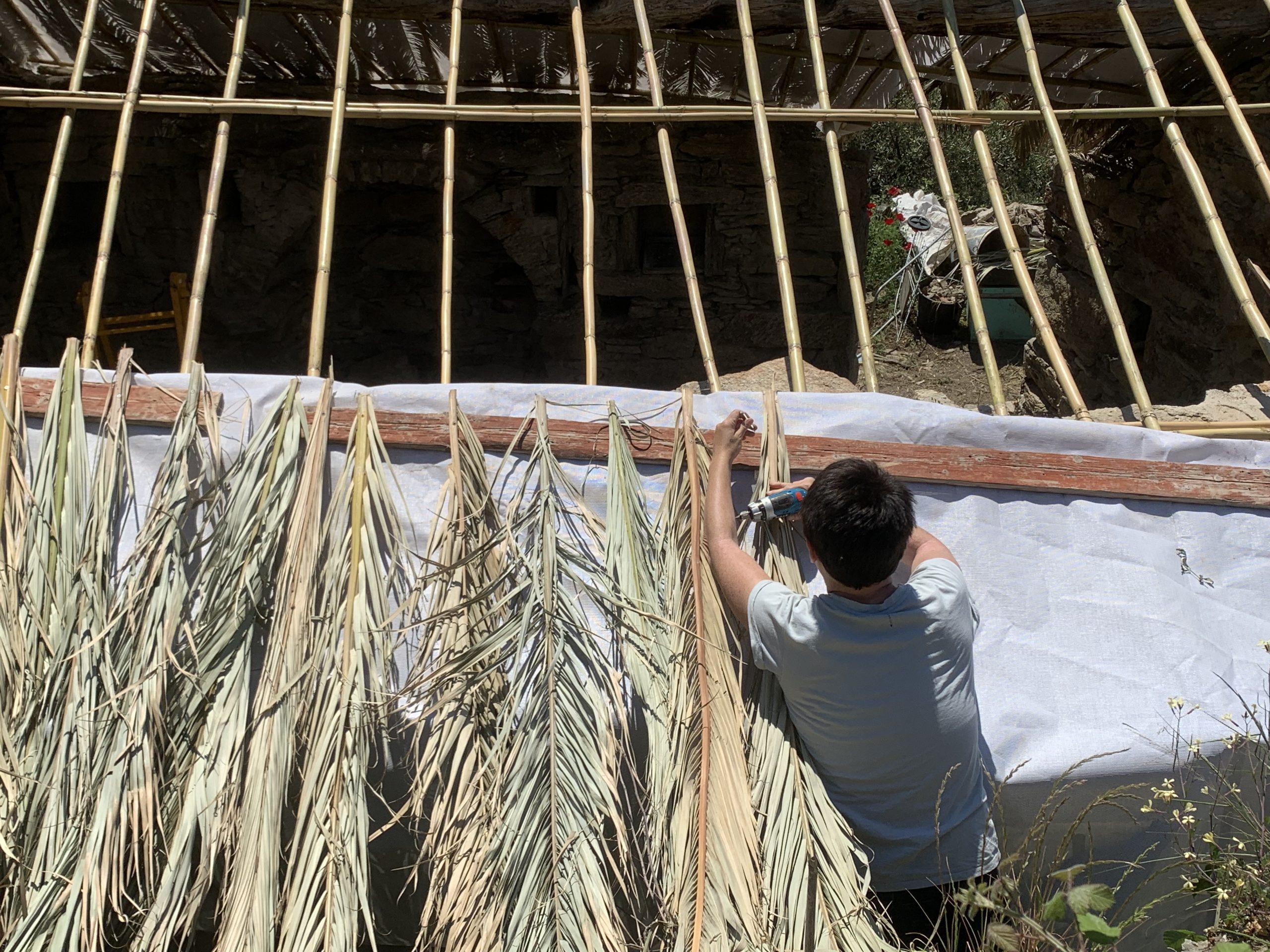
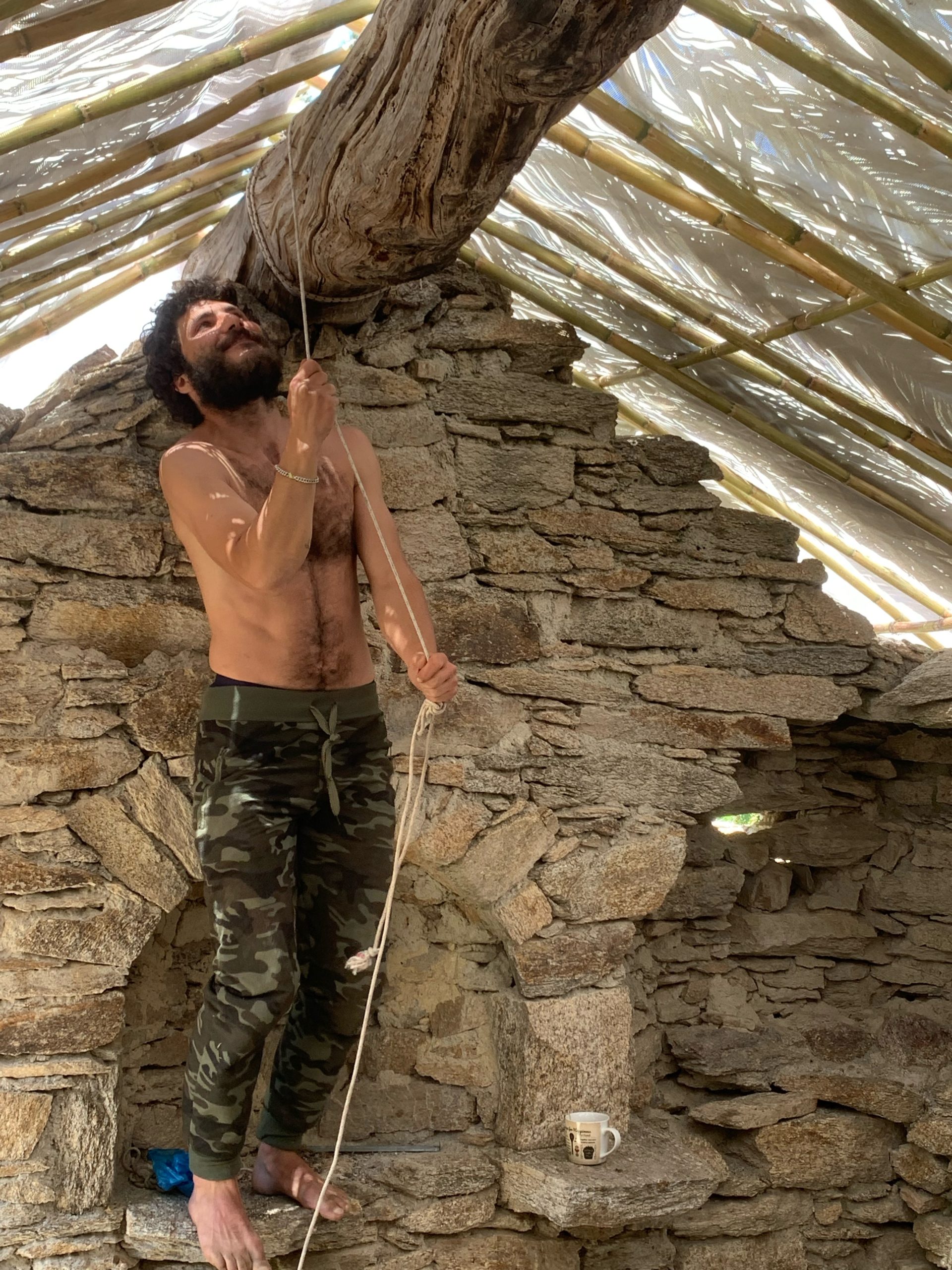
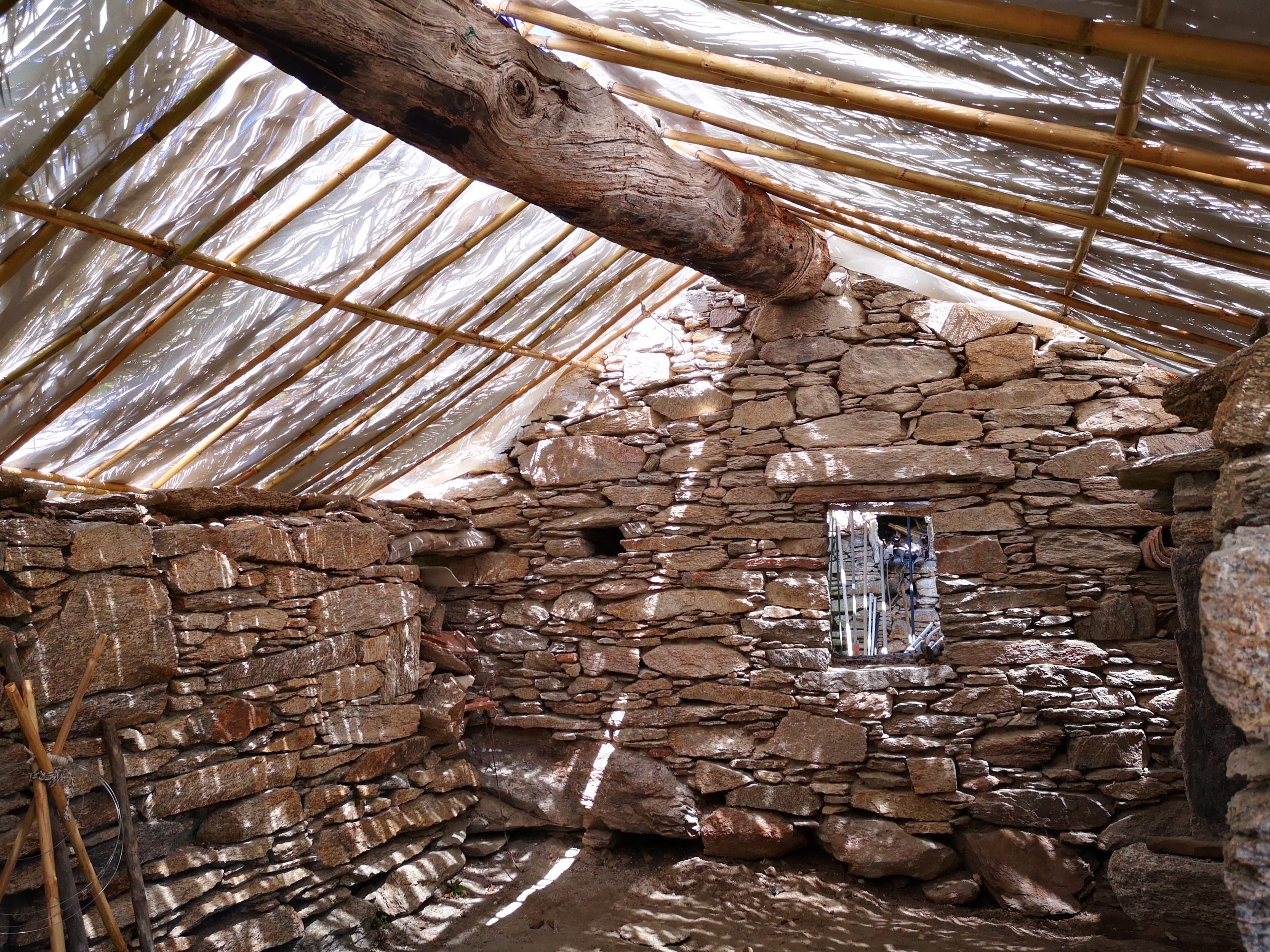
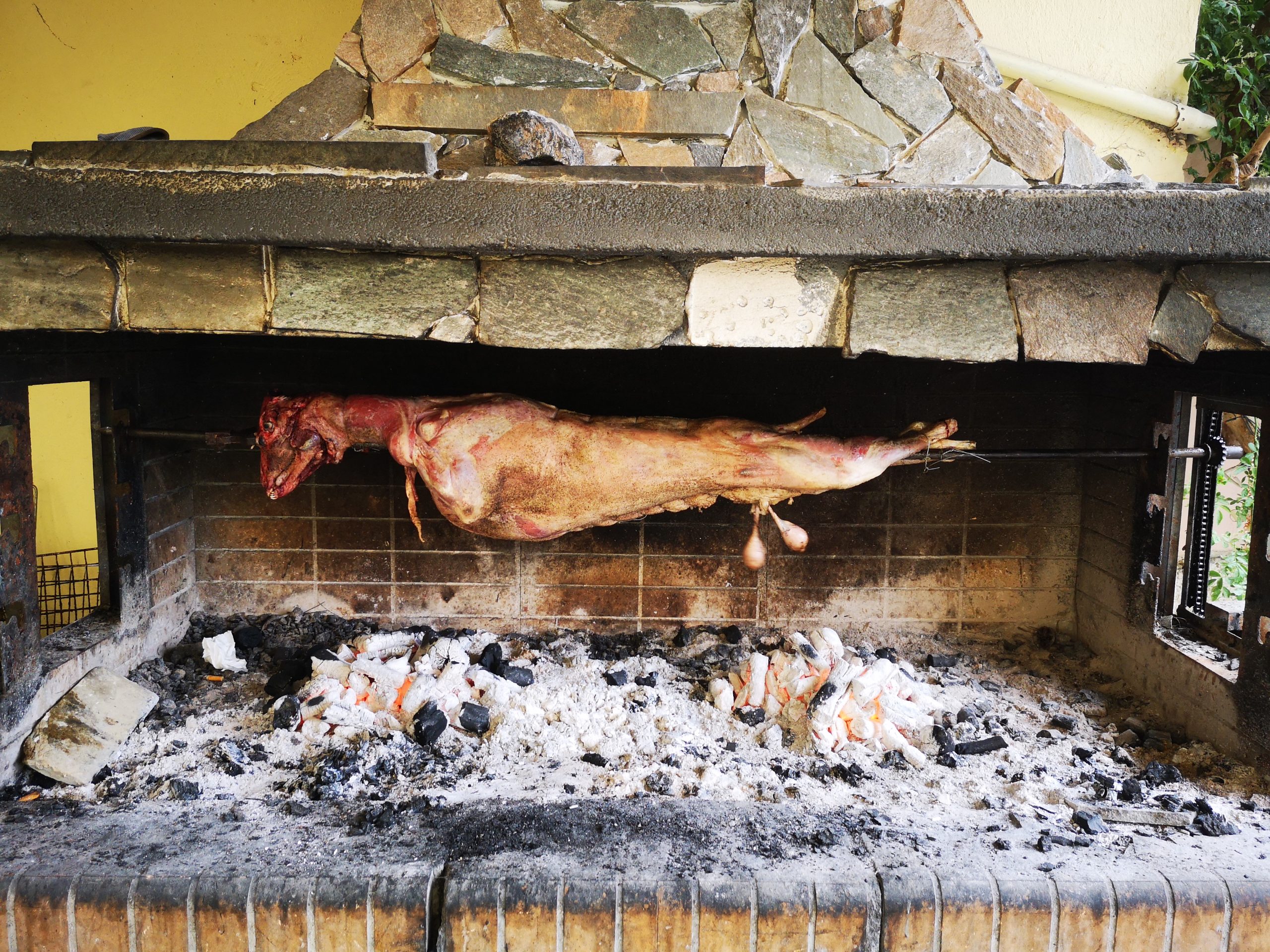
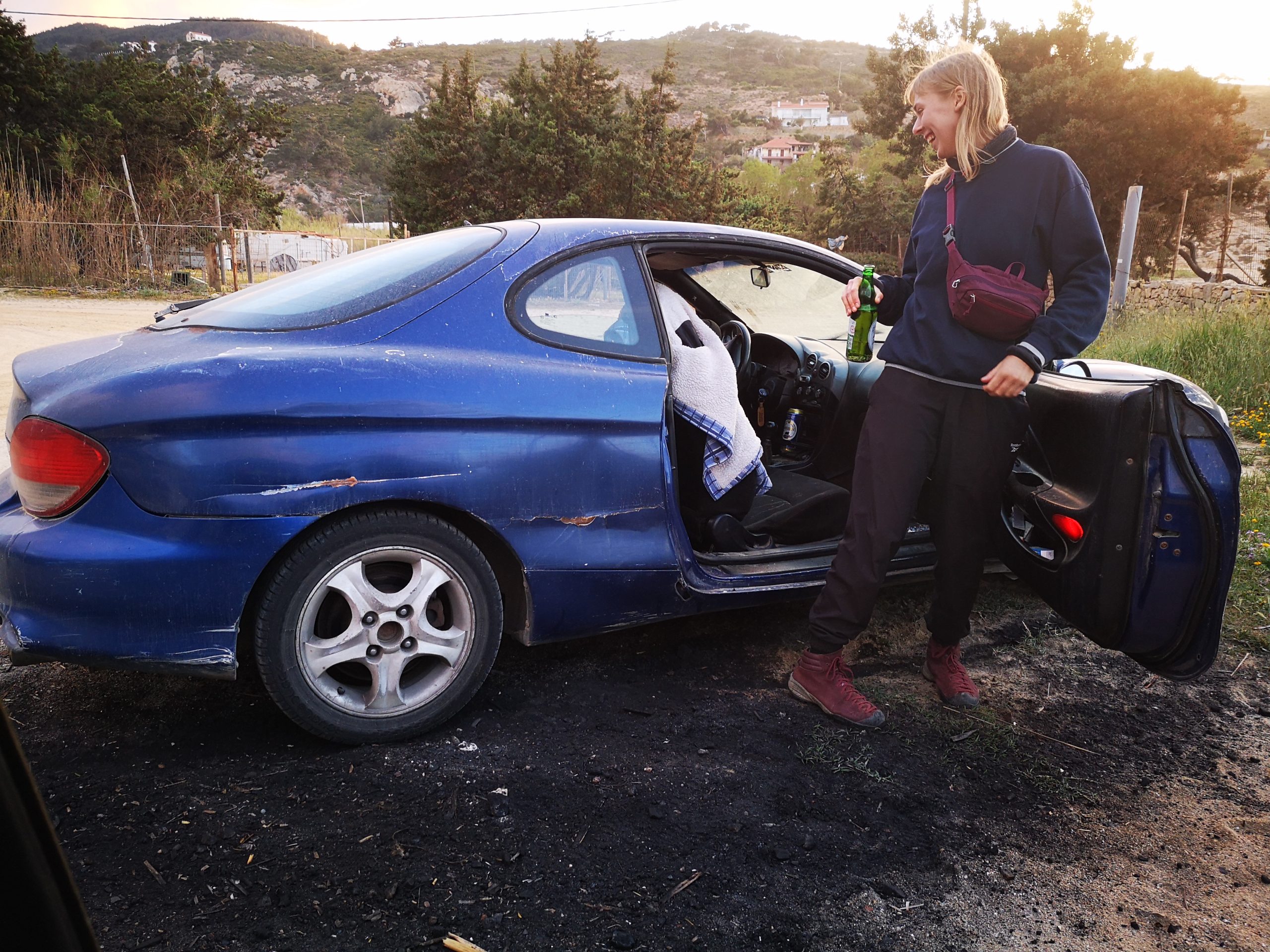
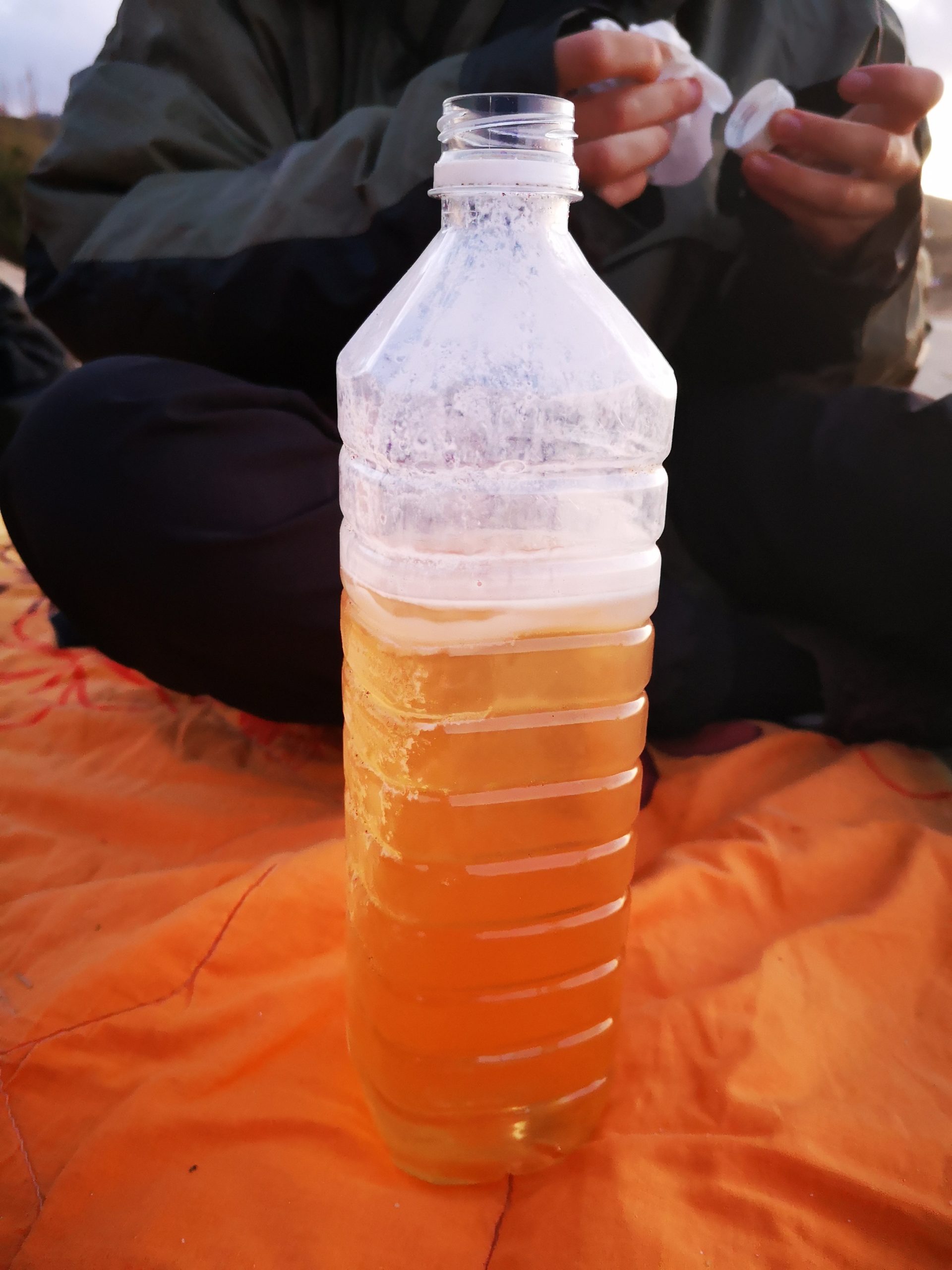
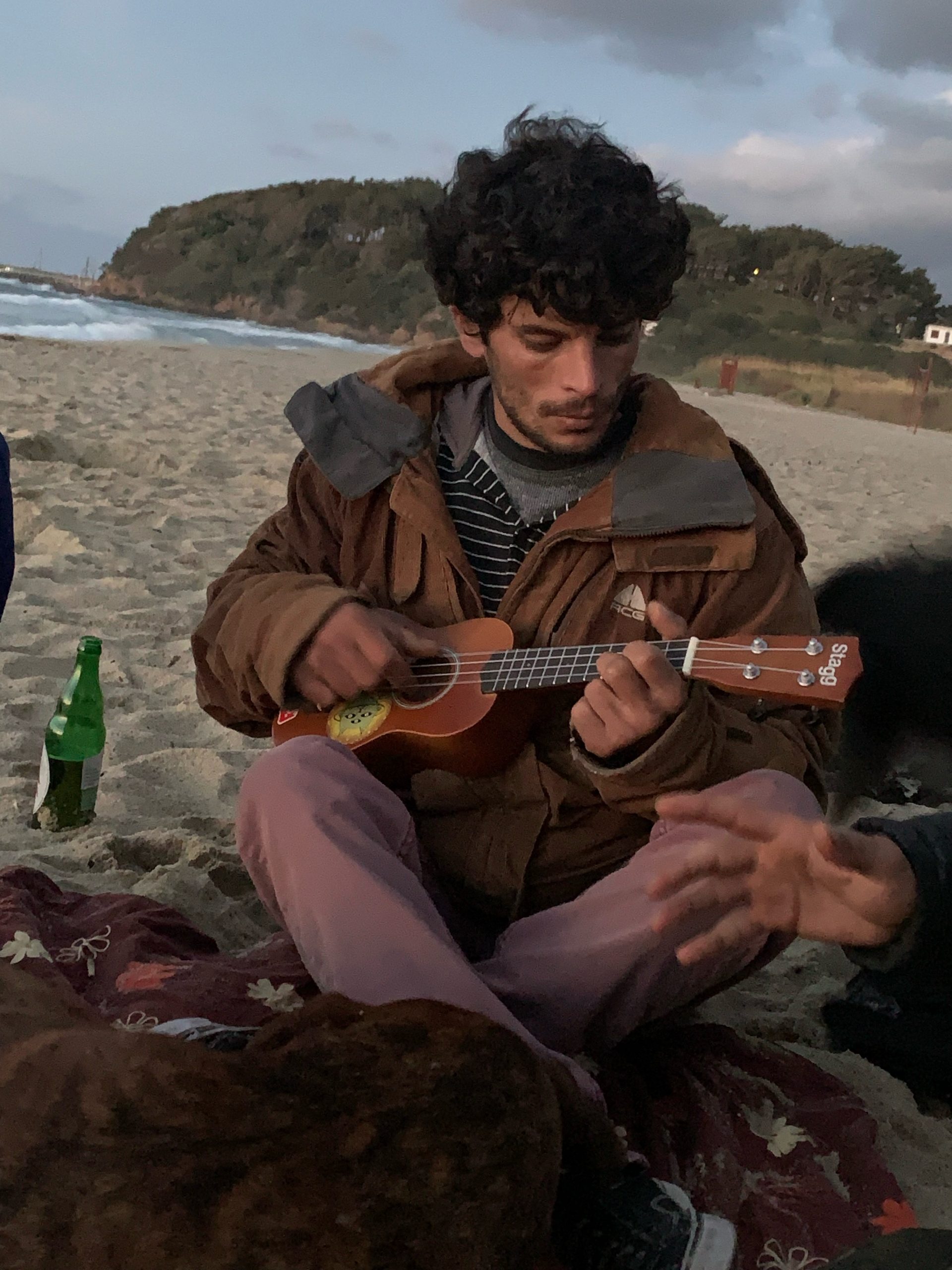
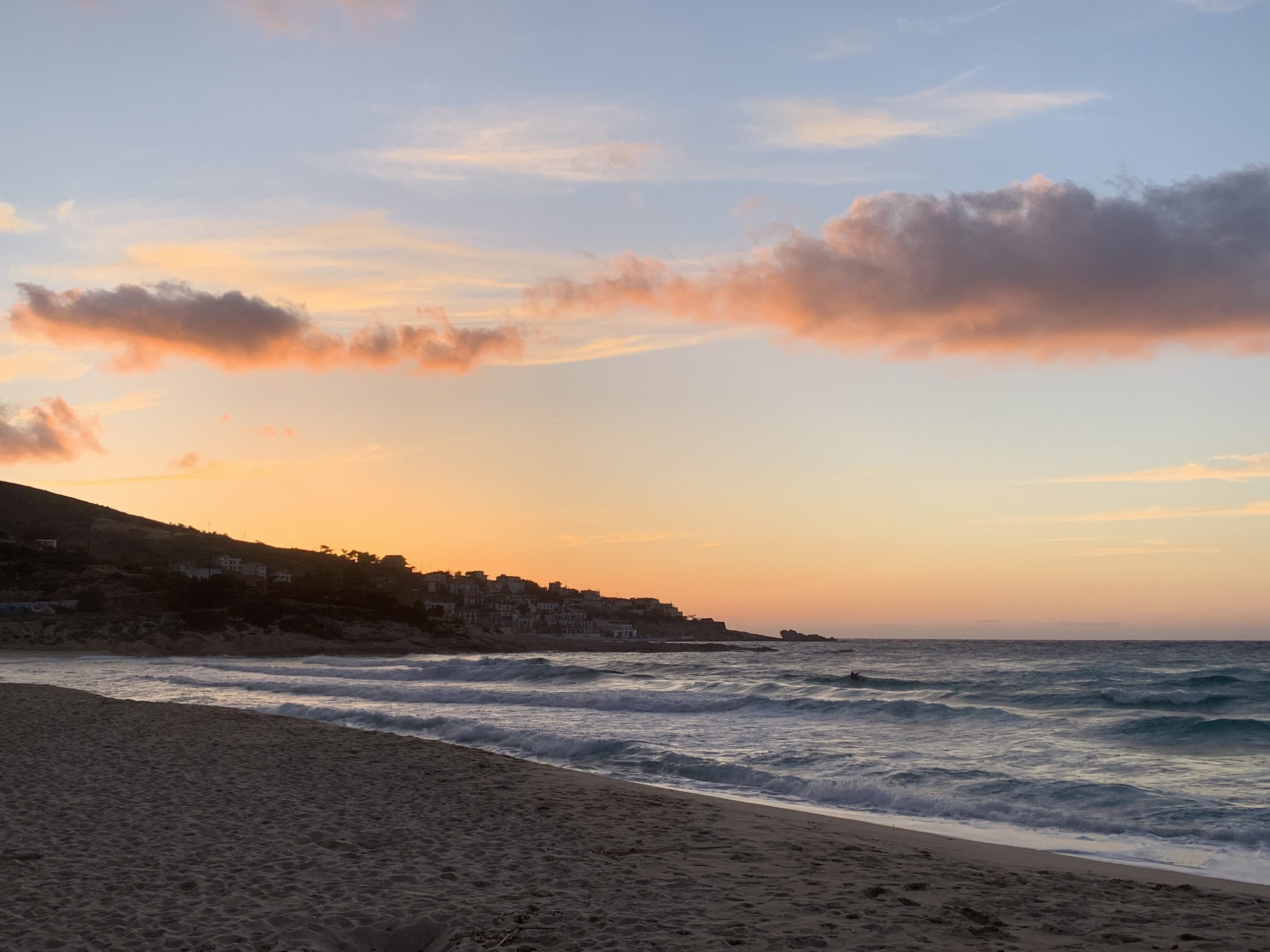
Artemis is the patron goddess of Ikaria – we went to visit her temple and her bay on our last day. As it turned out it wasn’t our last day; we believe Artemis, and the island, was not quite done with us. Turns out we weren’t done either.
We thank you Artemis.
How the Island Captured us:
On our penultimate night we went to Artemis Cafe, watched the sunset over Nas bay and had the best koftë we’ve had all trip (sorry Turkey). This bay is where a river runs into the sea and at this meeting point, on the bank, are the ruins of Artemis’s temple.
The lady who ran the restaurant was so lovely to us and had a serene and contentedness as she went about her work. We were her only customers that evening. She gifted us a delicious chocolate treat, as well as news of a party the following evening in the mountains. Another experience testifying that this time of the year is the best time to be exploring these amazing places, and meeting the people there.
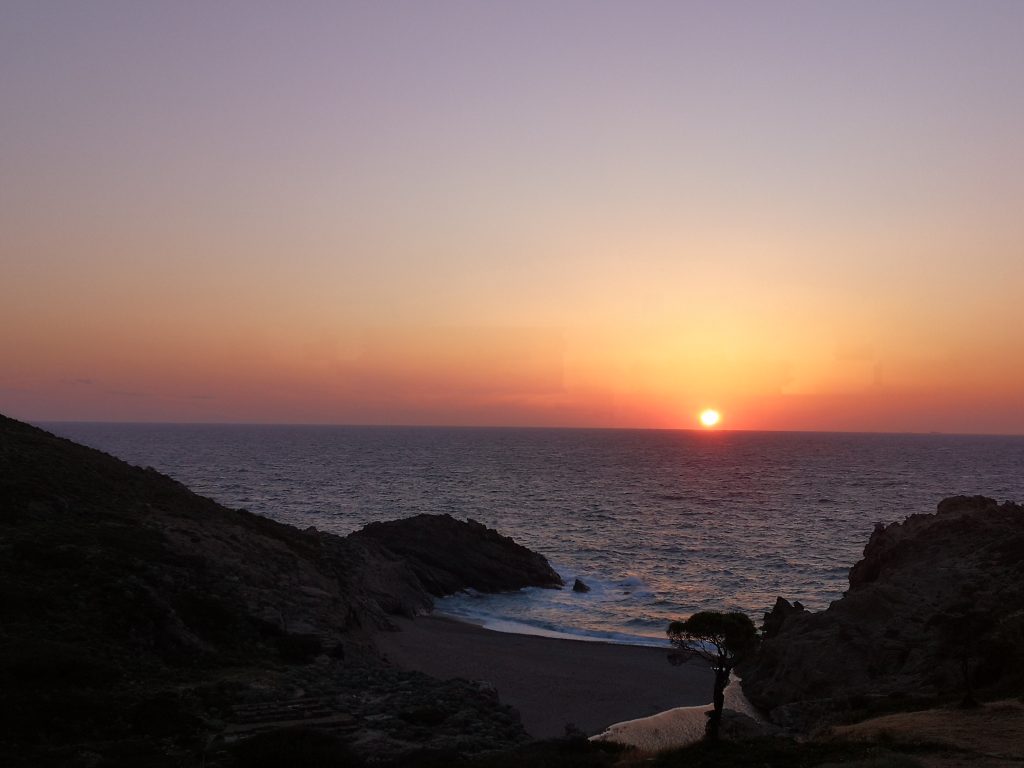
The following day after work contributions, we went with Sebastian and Anna from Otopus back to Nas but this time to the beach for a swim and explore. When ambling around Artemis’s temple ruins Ana picked up a rectangular piece of marble and pocketed it as a memento. Then, sunkissed and dry, we left for the party.
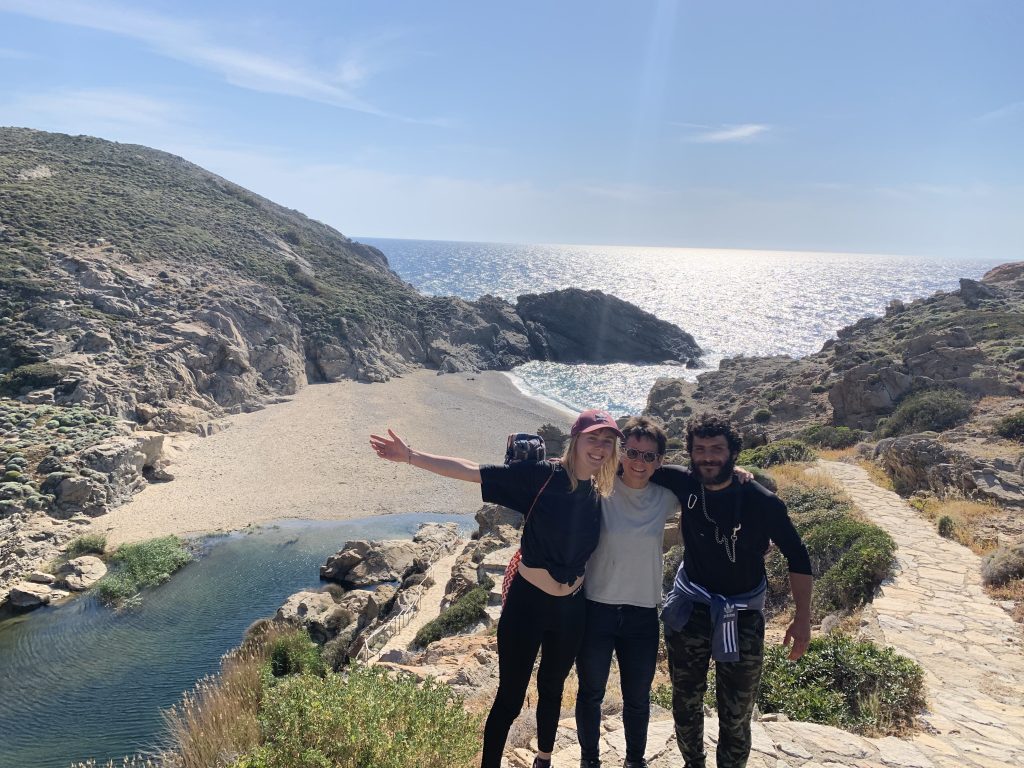
The location for the party was breathtaking – the highest point around, a view out to open sea and the sun falling directly in front of us. There was live music inside but while the sun was still up, people milled outside eating grilled skewers and drinking Ikarian wine, it was very chilled.
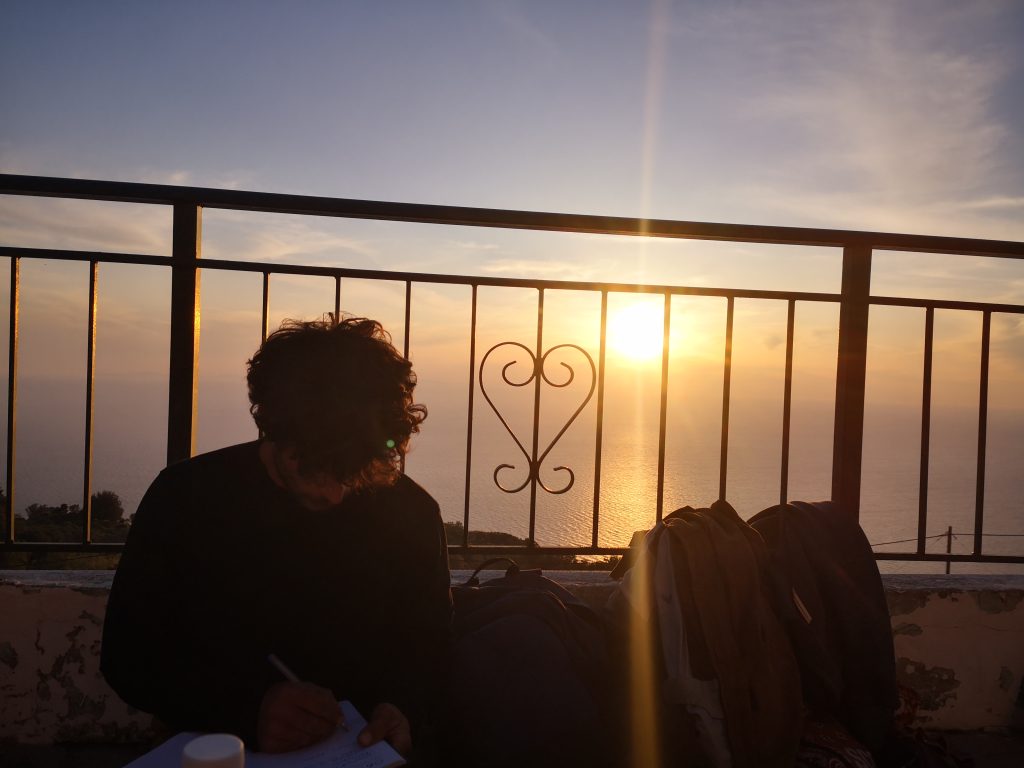
As the sun went down, people claimed their seats inside and the atmosphere ramped up in raucousness, and the main word on everyone’s lips were ¡YAMMAS! ¡YAMMAS!
Dionysus and his daughter Artemis were certainly looking down on this party; there was much free flowing wine, dancing and frivolities – we had a marvellous time. We also met loads of foreigners to the island who had also decided to make it their home. They ranged from Canada, to Mexico, to Argentina, and hearing their paths to the island and passion for it was enchanting, and inspiring!
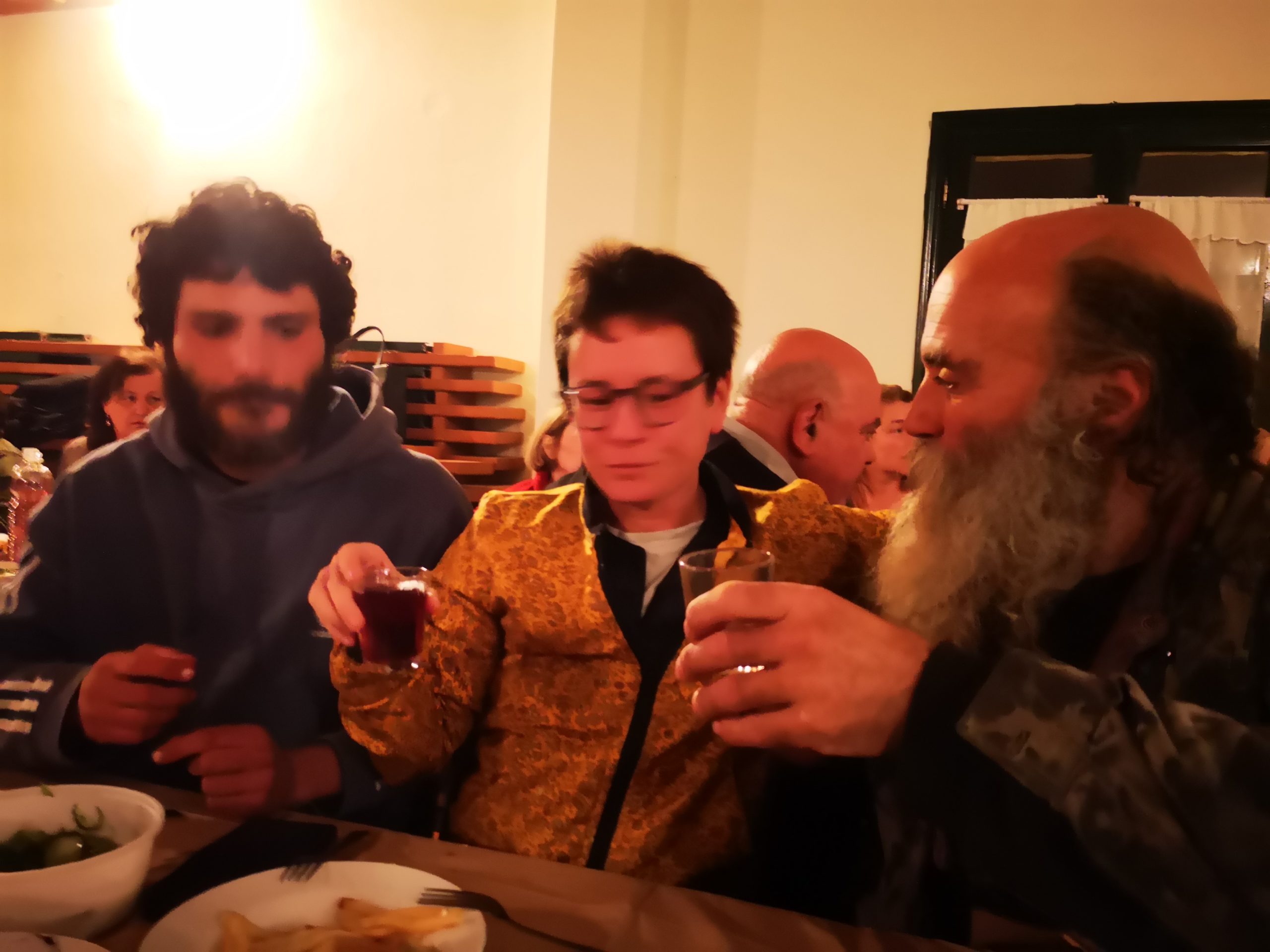
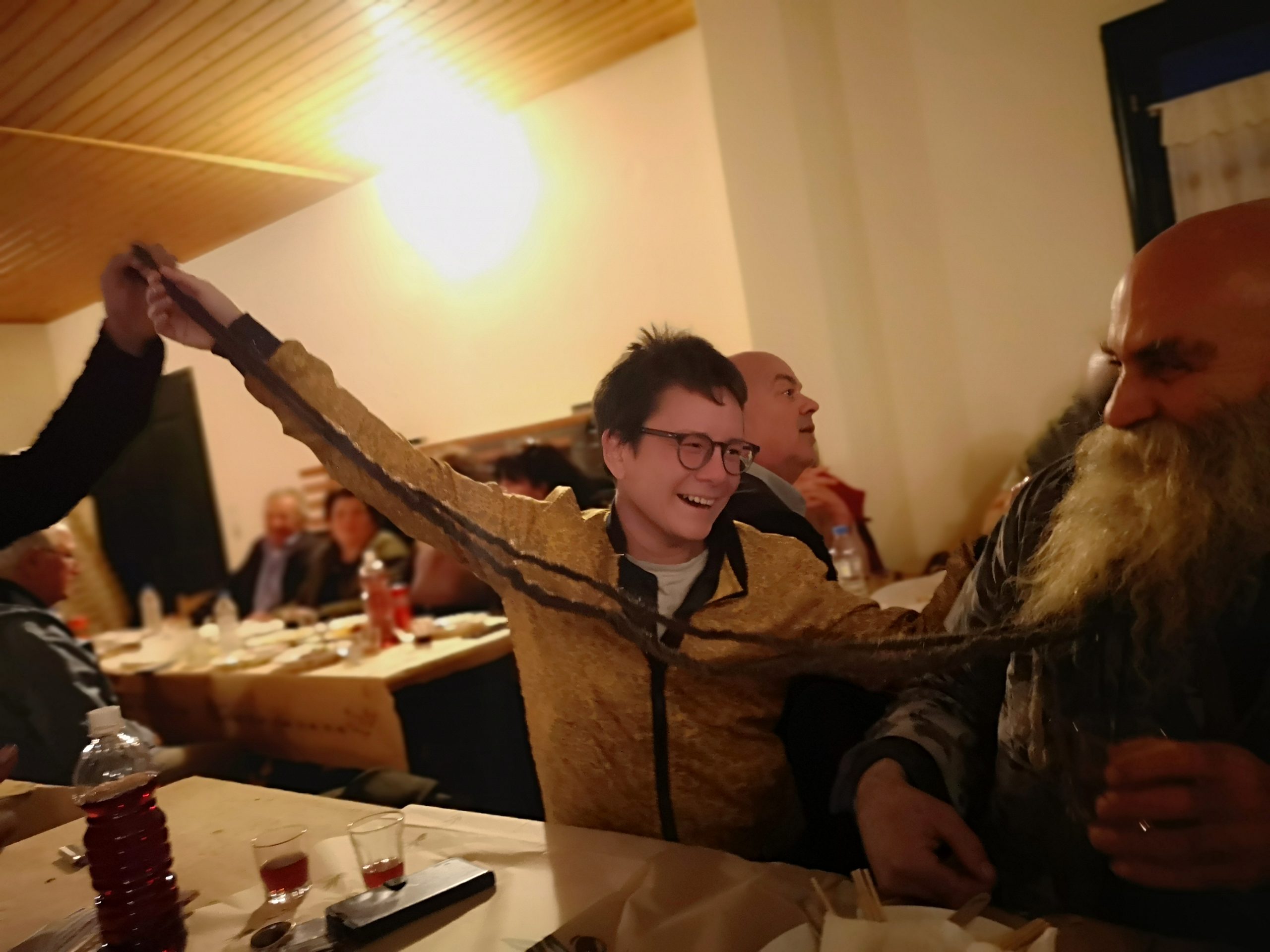
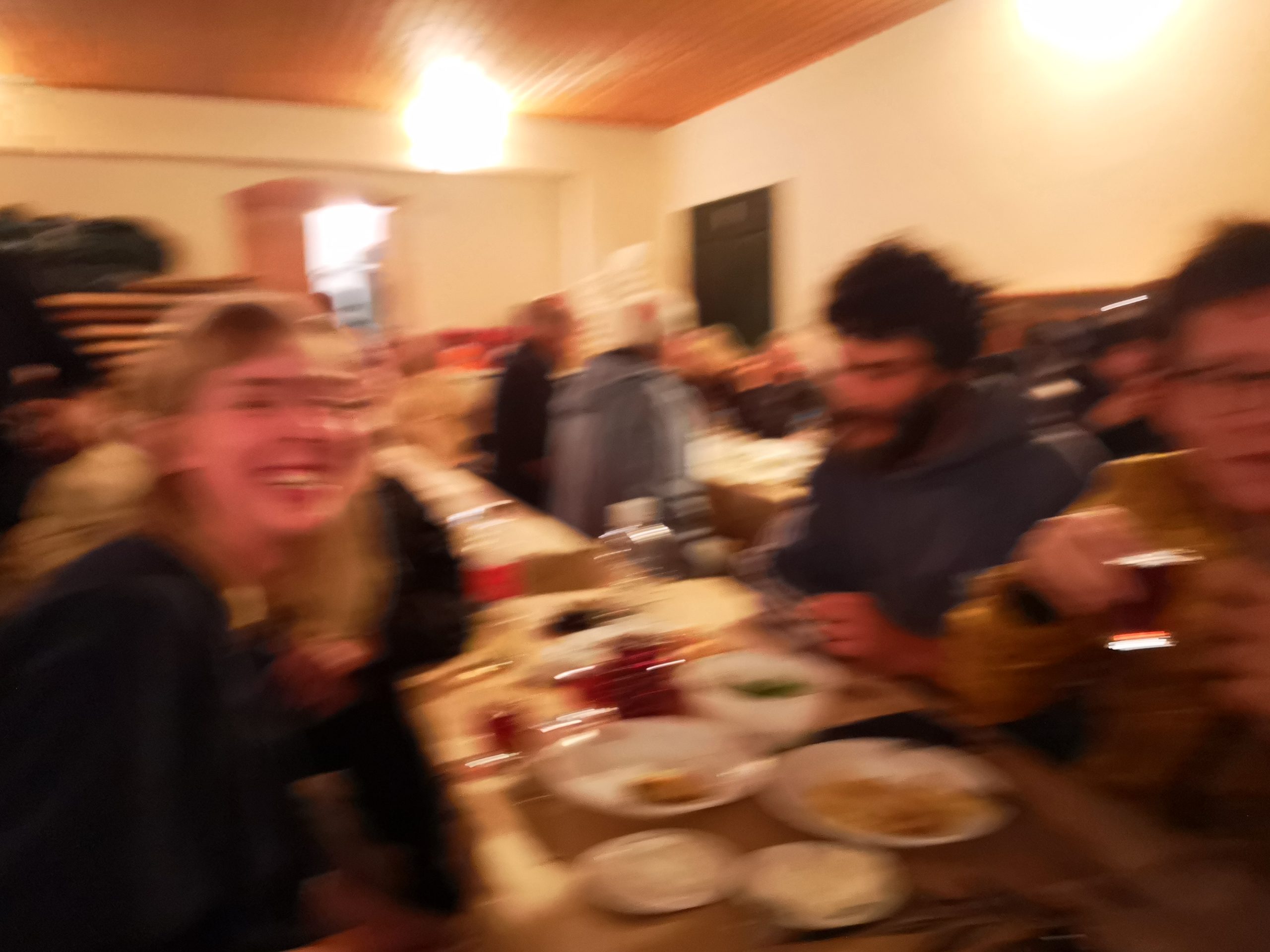
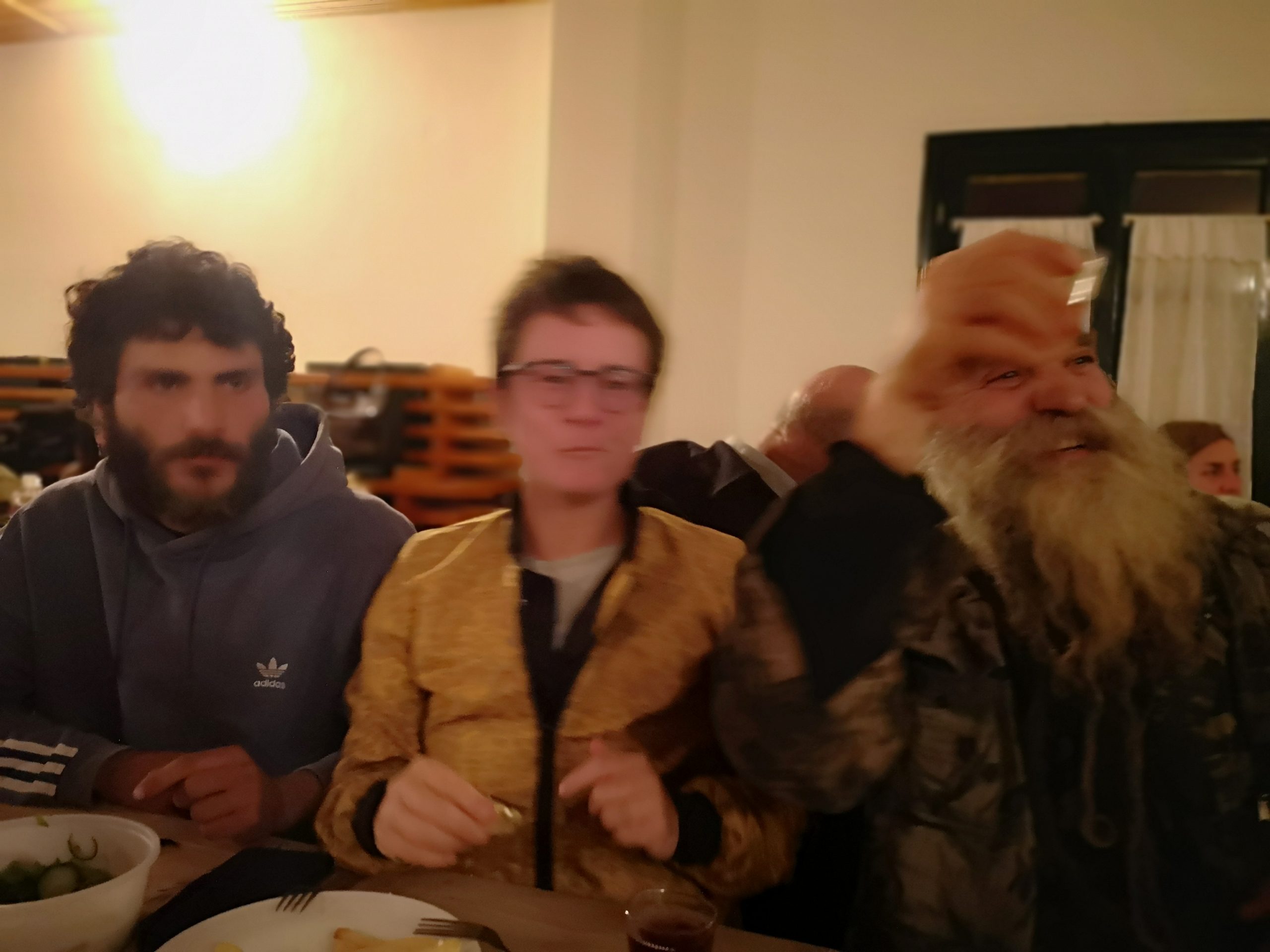
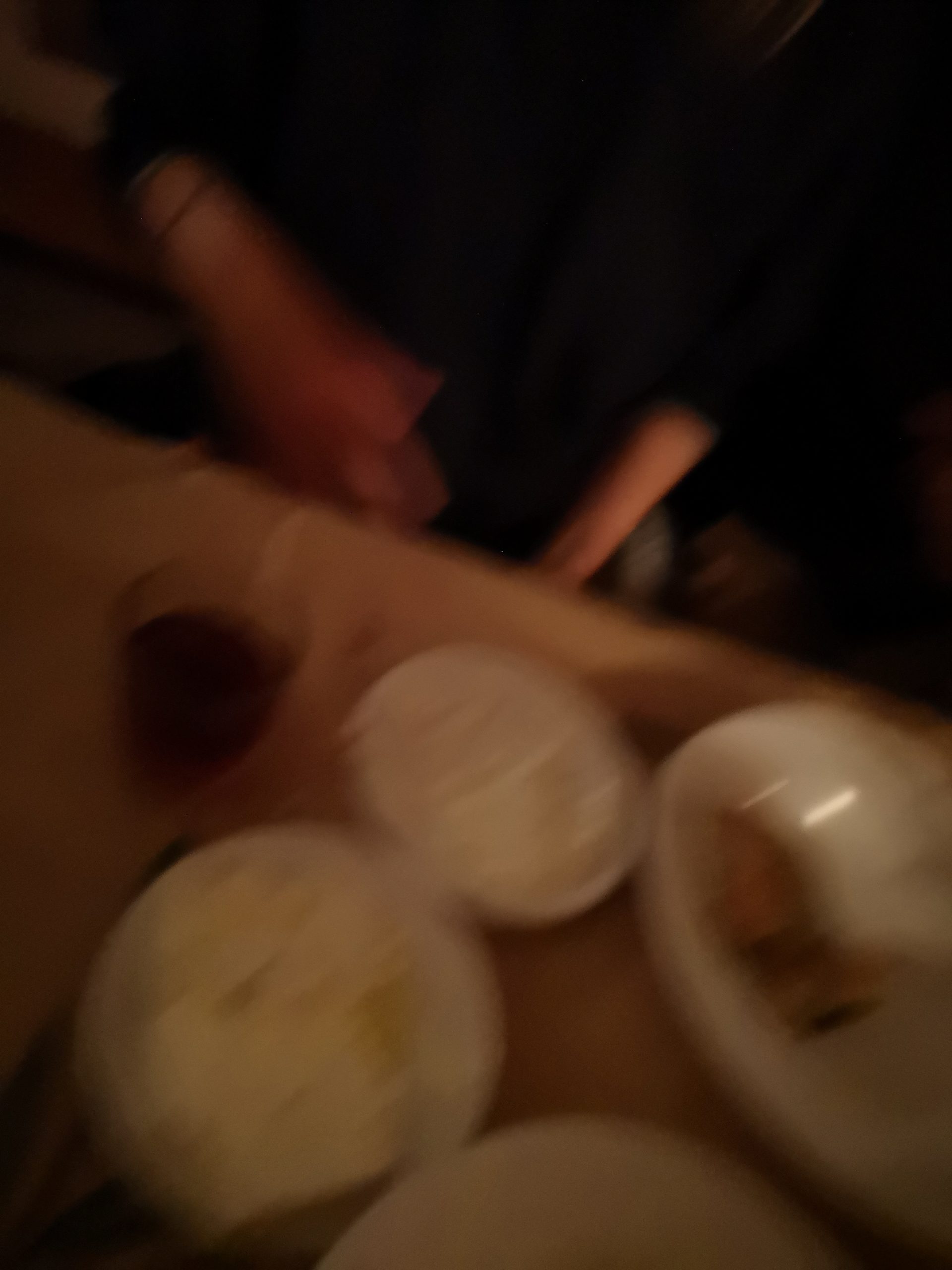
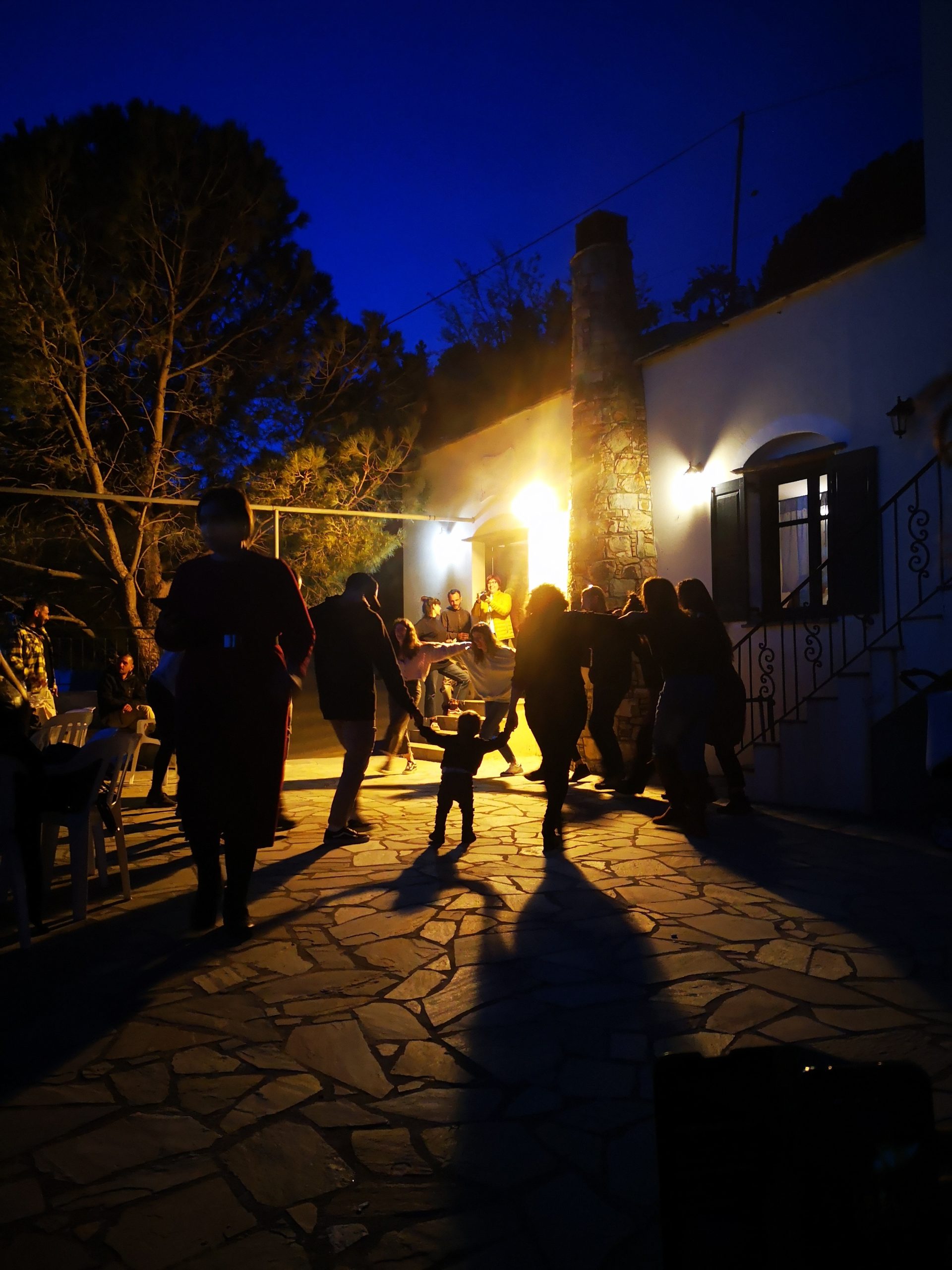
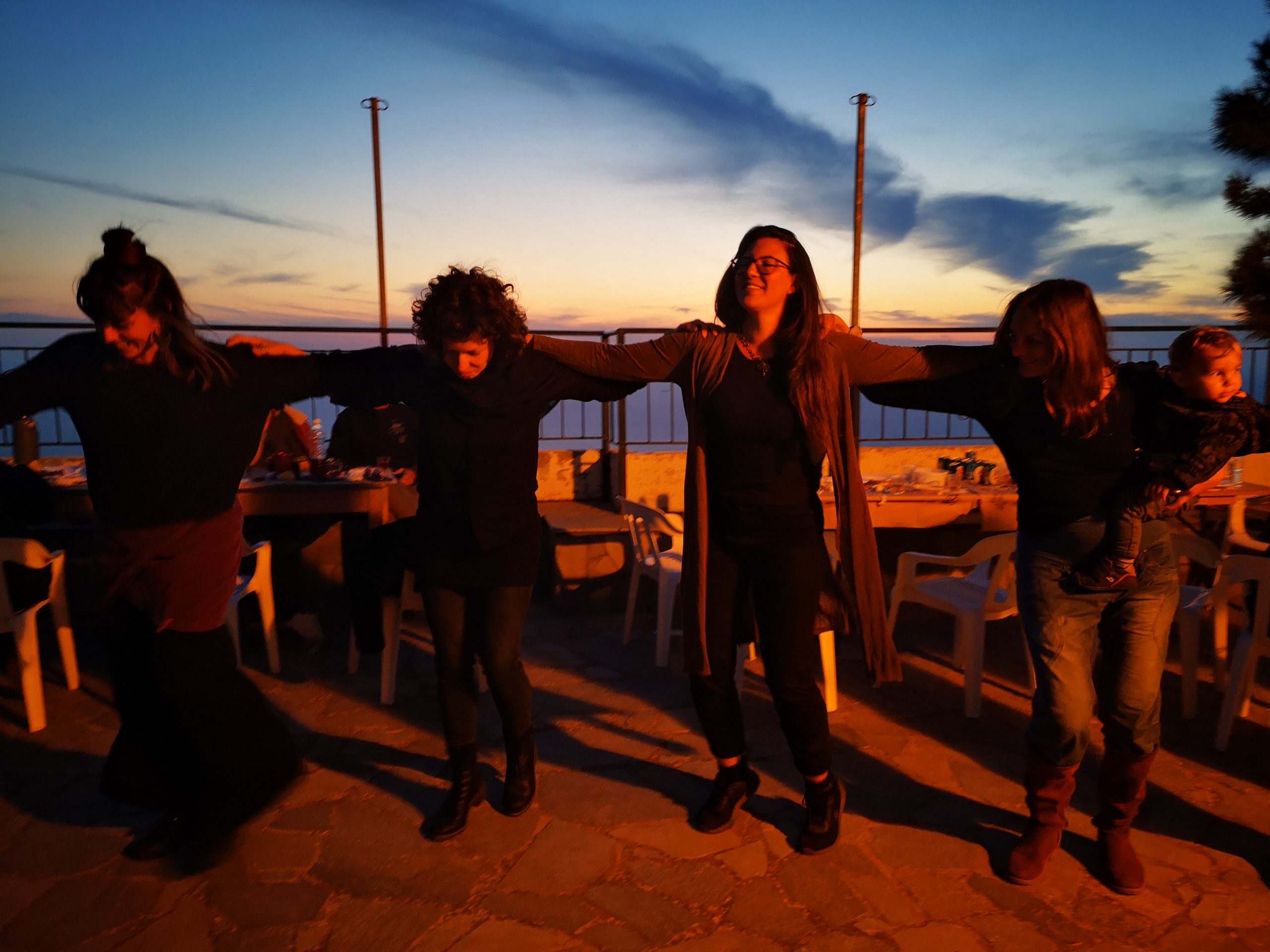
Around 1am (with no sign of the party flagging) we realised we had an hours drive back to our place and a flight to Athens the next day. As we congregated at the car, Pippa realised she had left our camera phone inside. She ran back, Ana searched our bag. Then, Ana called out she had found it in her jeans pocket – we went on our way, driving very carefully.
Safely at home and having said our goodbyes to the Otopus crew, Ana realised that it was not a phone she felt but the piece of marble she had secreted from Artemis’s temple – shit.
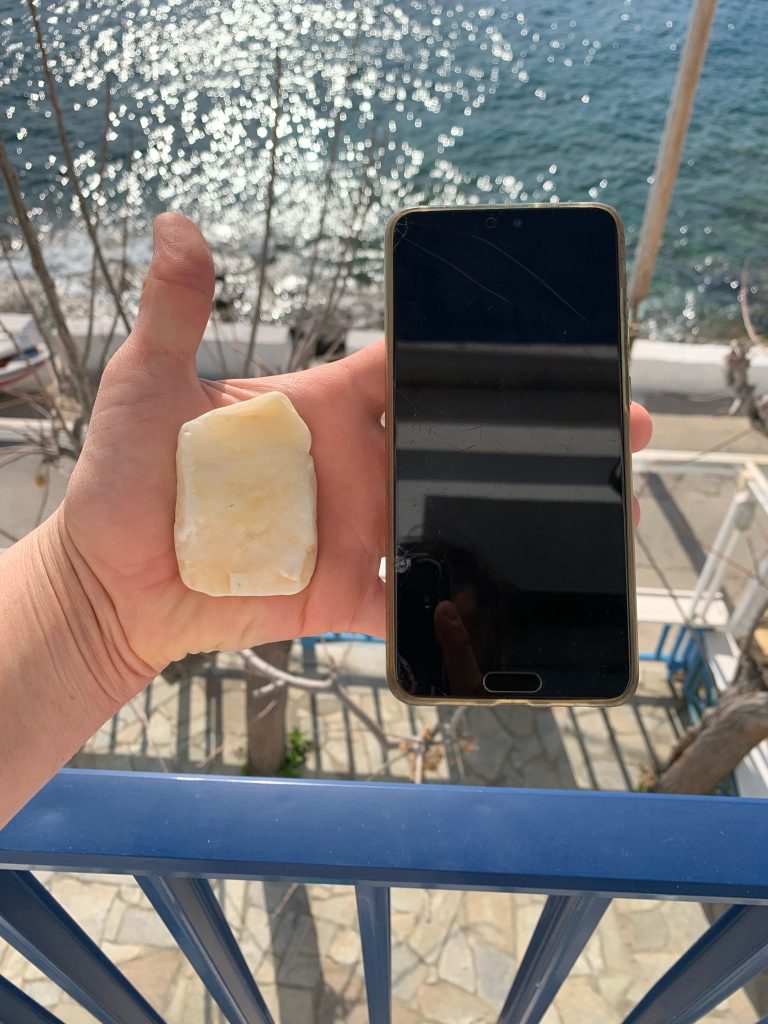
The next morning Ana tumbled into the car and went back to the venue. Pippa contacted people on the island to see if they could help locate our phone. Ana searched from top to bottom an empty hall to no avail. We got the number of the organiser but despite our incessant calling, they were not answering but clearly enjoying being asleep. So with our heads muddled and feeling foolish and dejected, we packed and left for our flight to Athens.
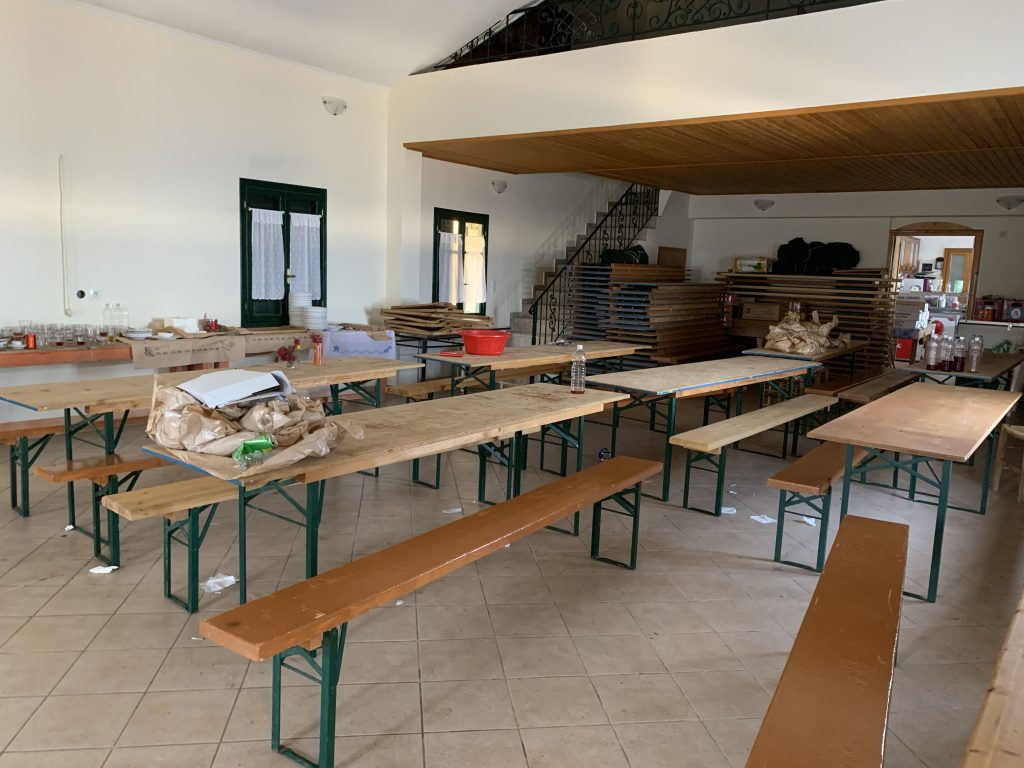
Ikaria was particularly stunning that day, as was the journey to the other side, where the airport was. We felt sad. We had understood the island better the night before, through the tales of the people we met and now we were leaving, to spend the weekend in smelly, hot, busy Athens? While also abandoning our camera phone, that had been assured to us was not lost but being kept safe by the island and would be returned to us. What were we doing?
Then our Airbnb host in Athens cancelled our booking with them. Only one thing made sense, we had to stay. We got to the airport and in a flurry of ten minutes, free of charge moved our flights to Sunday, extended our car hire and whizzed back to our Airbnb ’home’.
Ikaria had us for two more days (and it returned our camera phone to us the next day too). We were delighted.
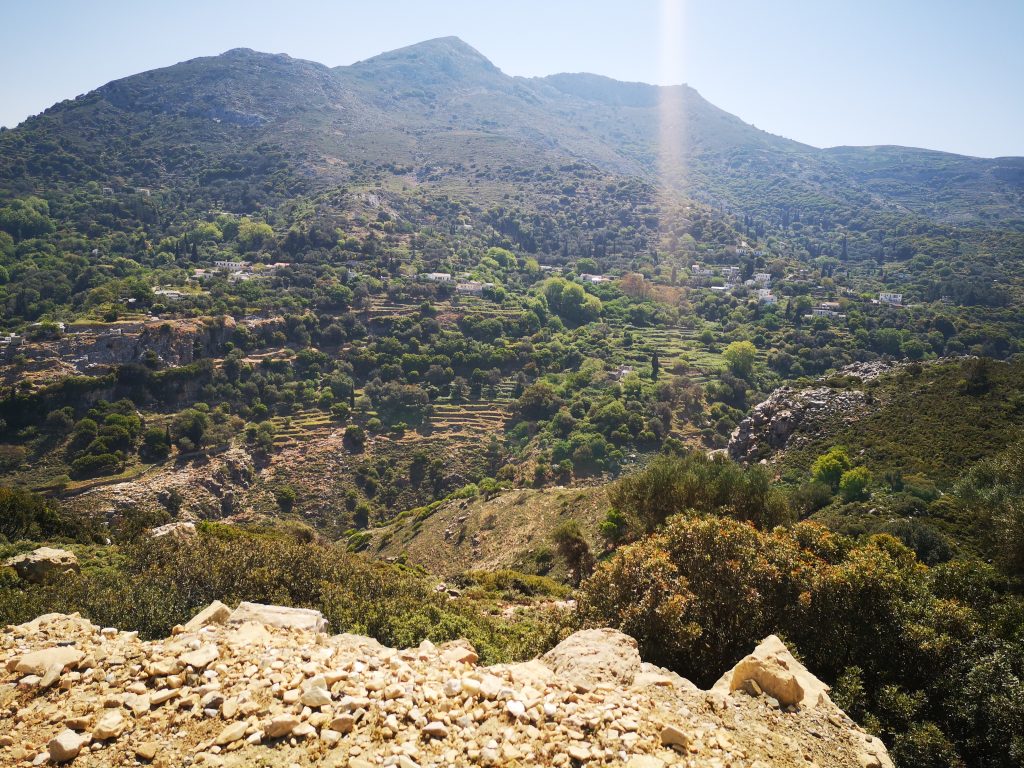
On our actual last day we really explored the island and drove all around it – the distances are not far, but a 9km journey takes 1 hour; roads are a series of hairpin corners and are only intermittently tarmac-ed/actual roads. No matter though, Nature was in full bloom and the smells of sweet flowers and fluttering butterflies kept us ‘cruising’ – finally we were having proper hot weather. We went to the aptly named, Seychelles beach on the south side of the island, and after some difficulty finding a safe way down we were rewarded with a nook of secluded paradise.
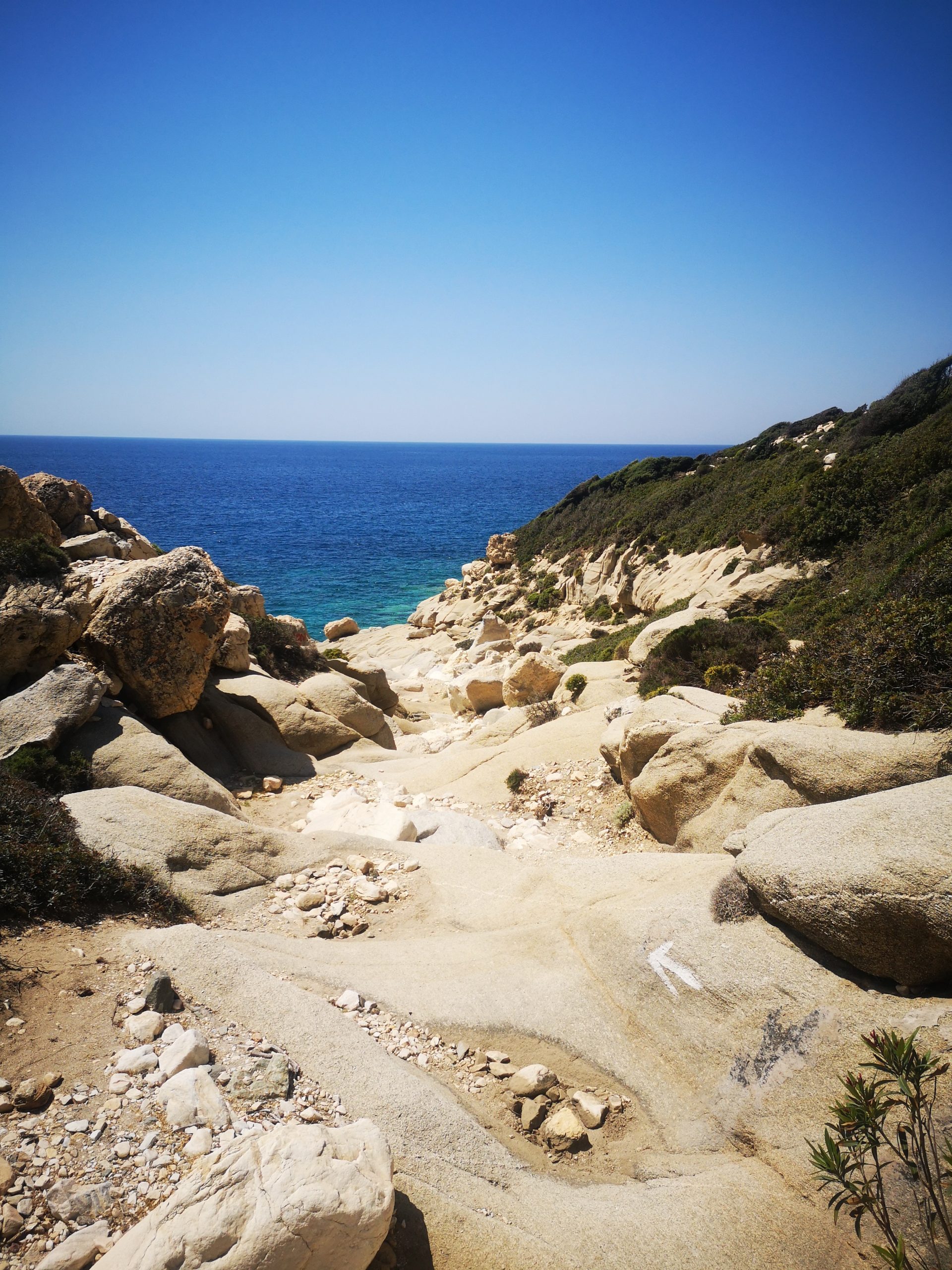
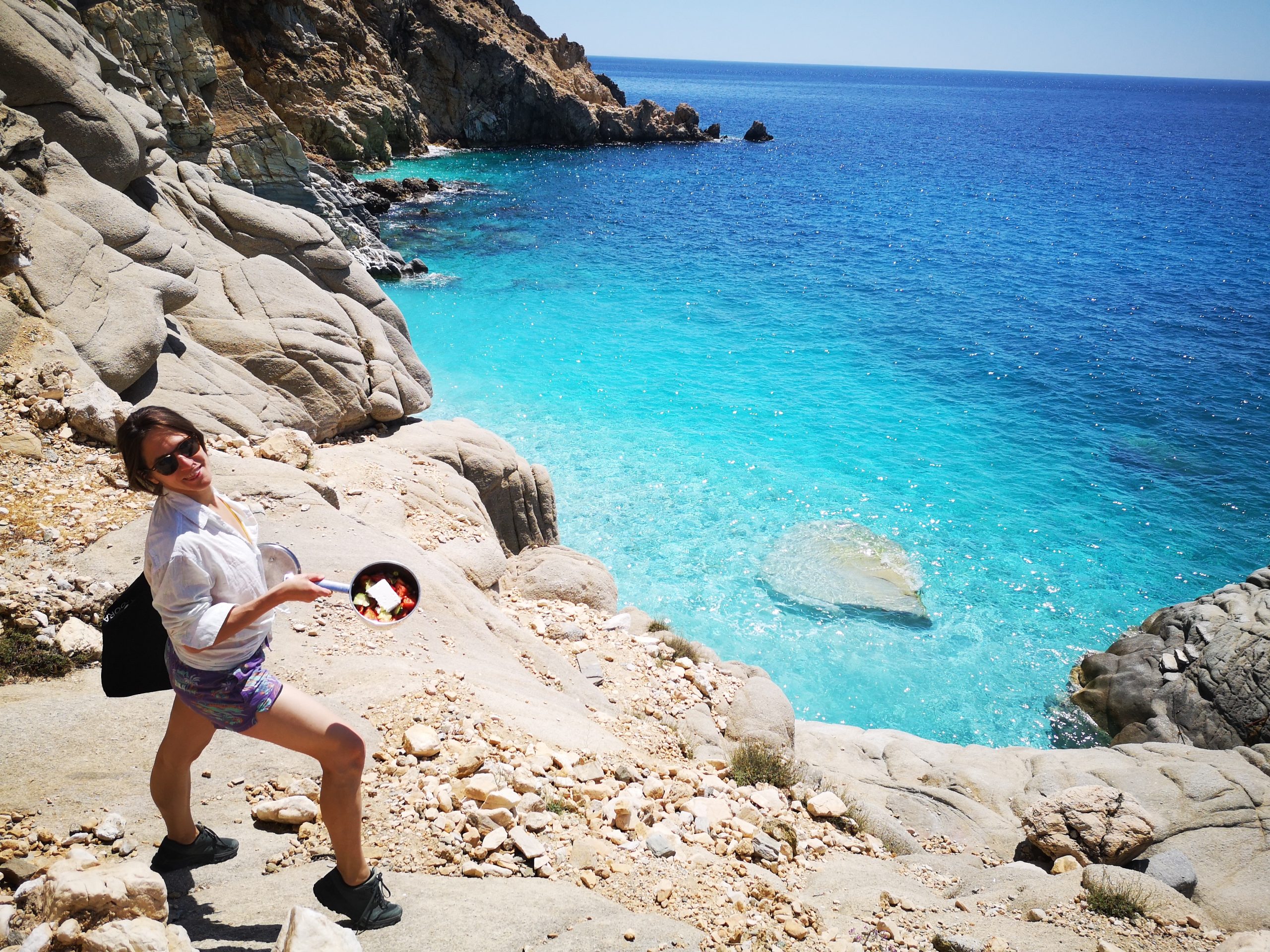
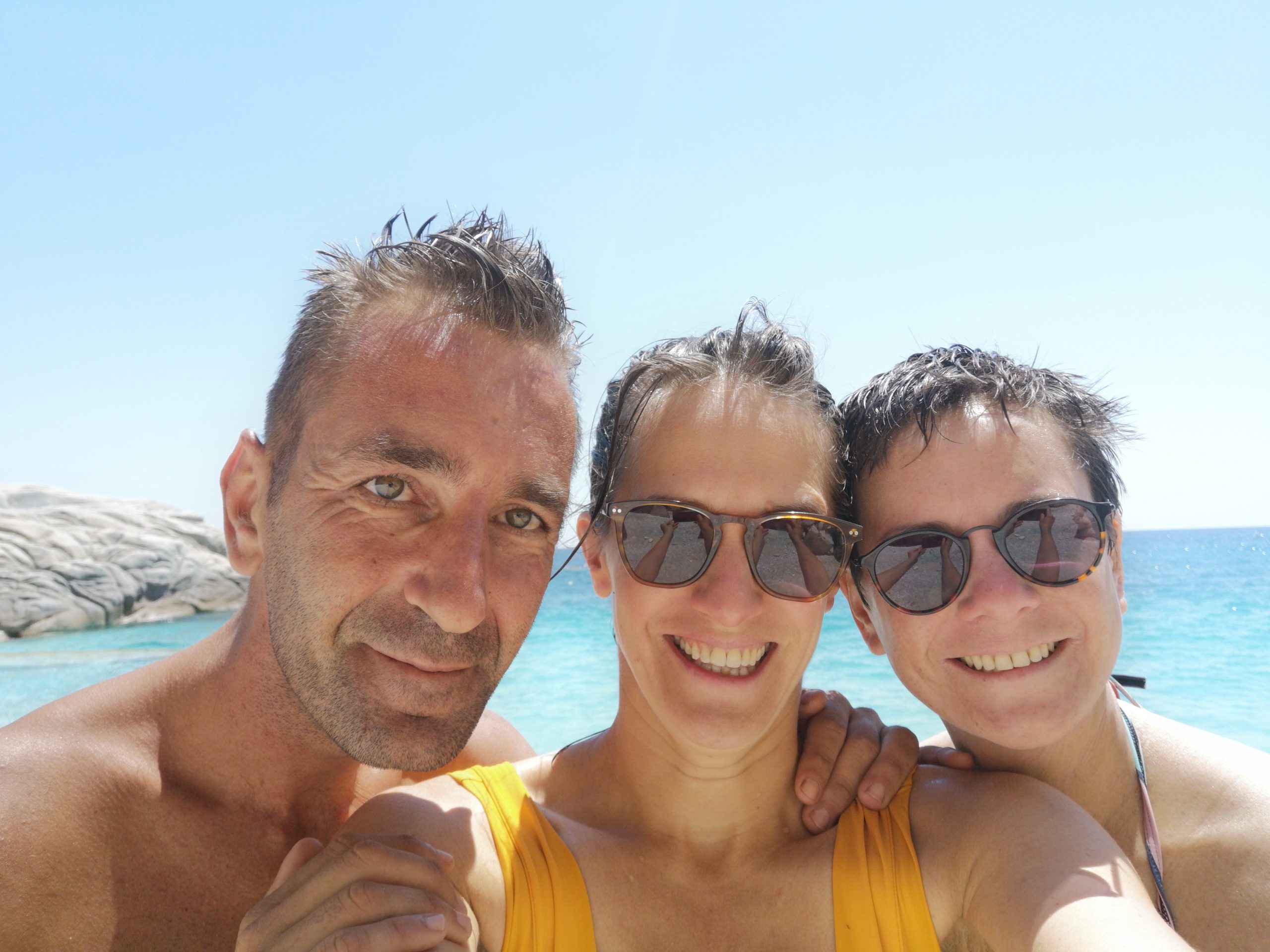
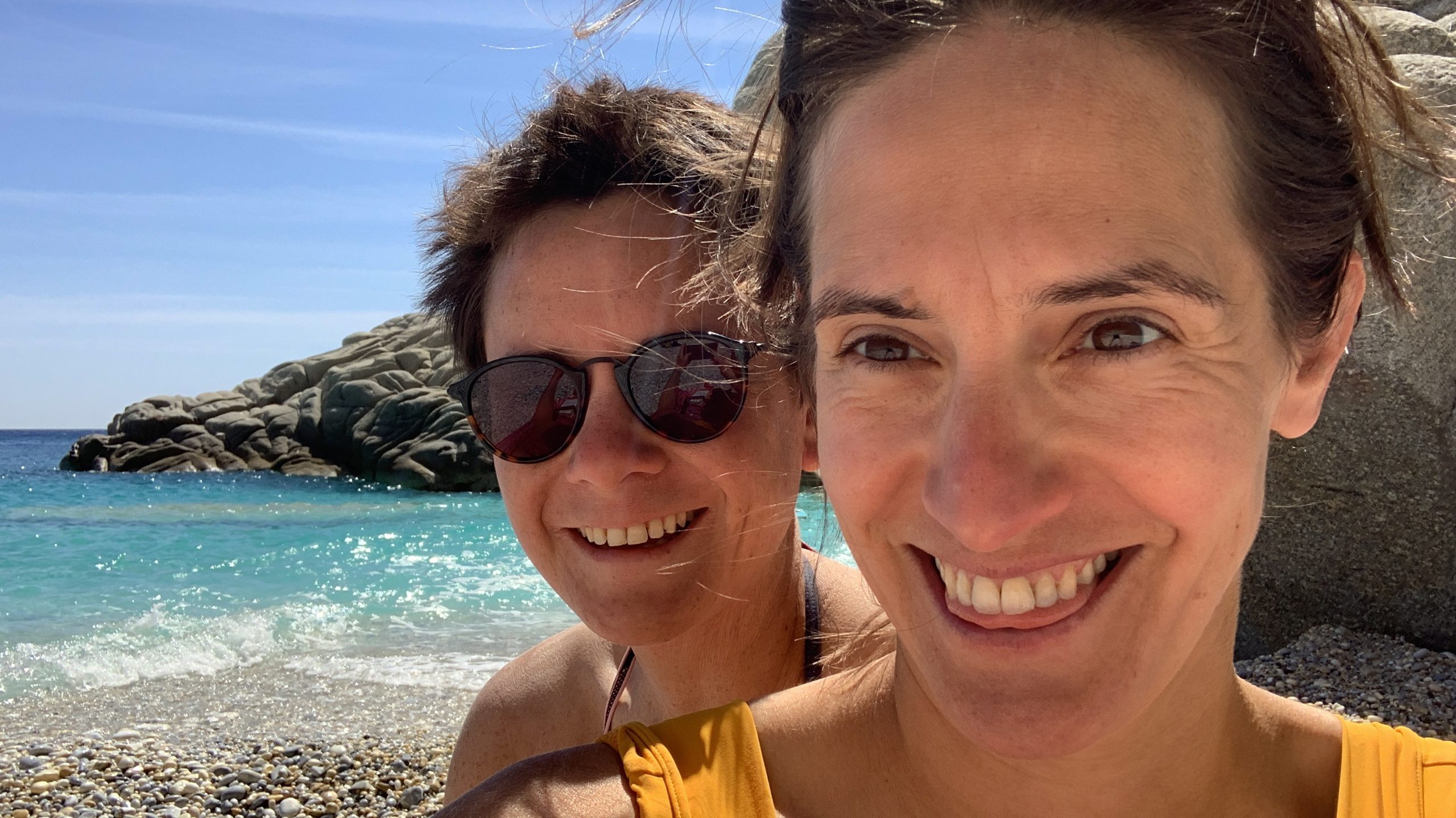
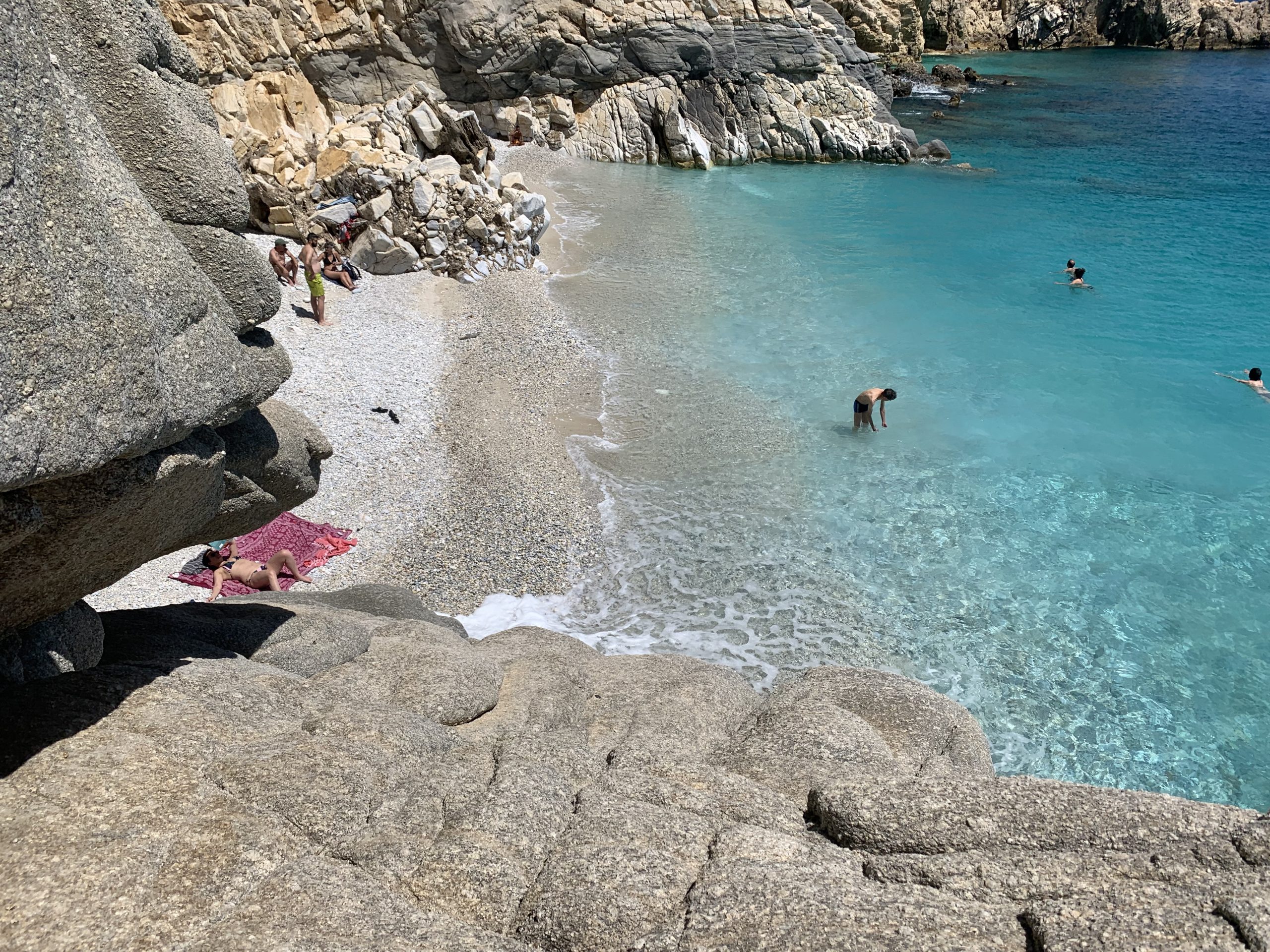
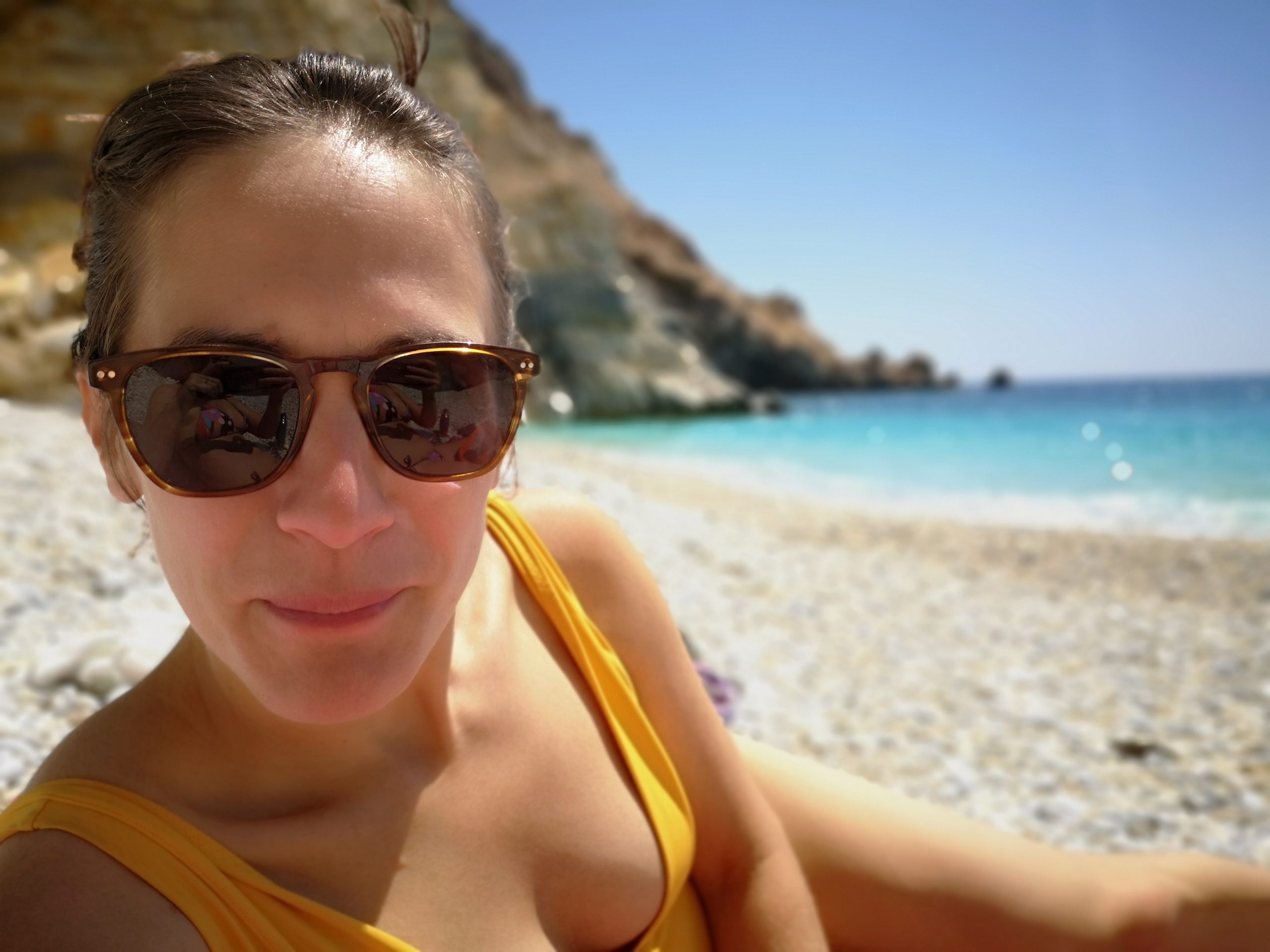
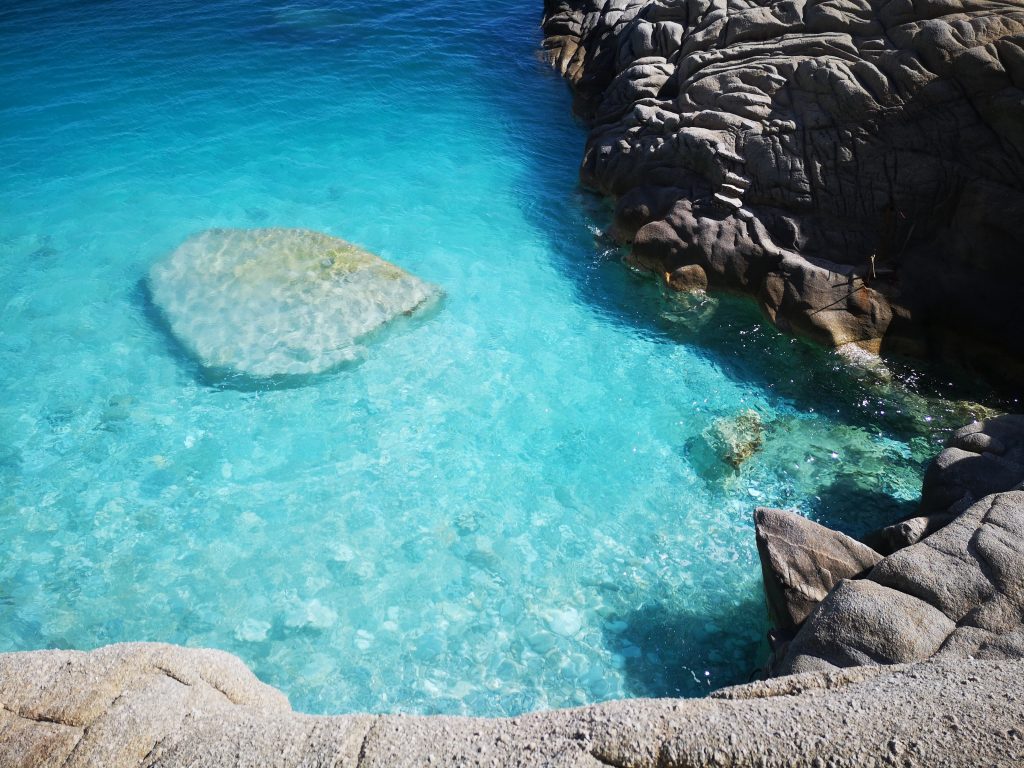
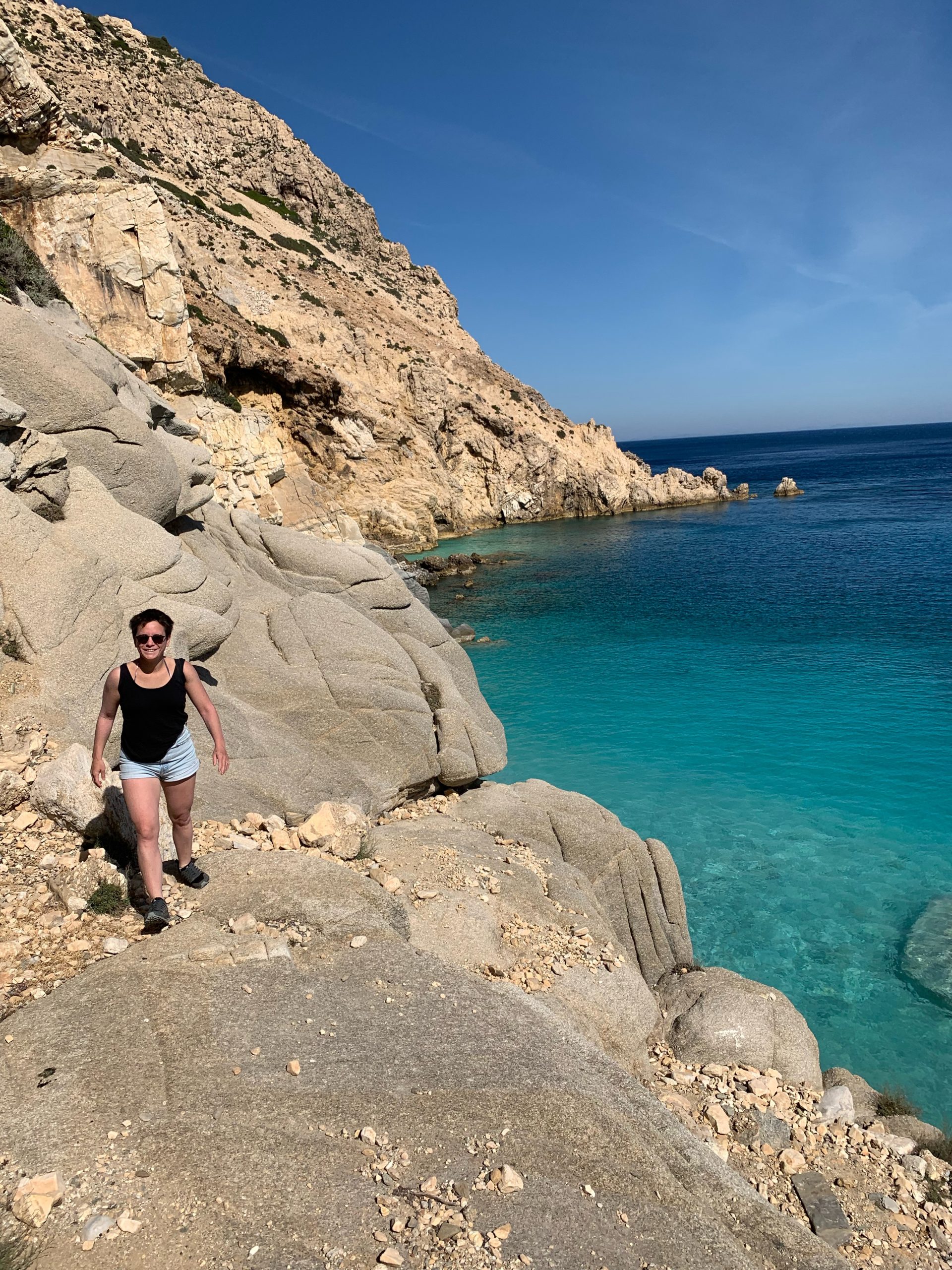
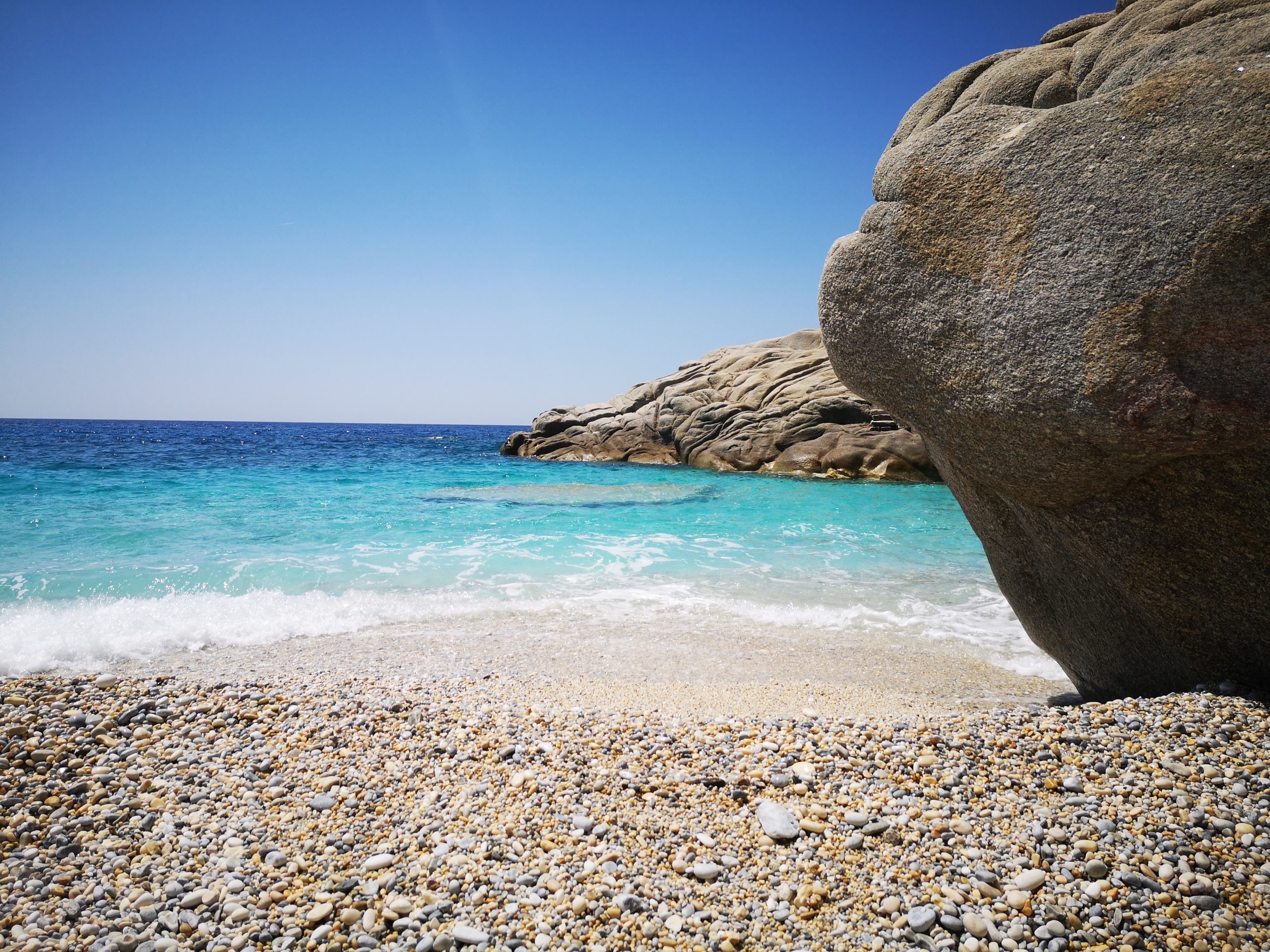
That evening, our actual final night, we decided to meet up with two Athenians from the previous party. Maria was an architect, Kostos a civil engineer, they had left Athens during the pandemic to come back to the island of their childhood holidays, but this time, to live. They indulged our many questions about Ikaria and gave us a good sense of the rest of Greece and comparative life on the island. Our love for Ikaria certainly grew over the course of the evening….
Ikaria is one of the seven ’Blue Zone’ areas in the world; places where people are healthiest and the live the longest. It is common for residents of Ikaria to live over a hundred and dementia levels are a fifth of that in the UK. We certainly felt very healthy there, despite the heady nights, so asked our friends their theory – they said community, people take care of each other and everyone is social, dancing, laughing and sharing what they can with one another. Another theory is the rocks emit low level gamma rays that are beneficial to longevity.
Ikaria was once the dumping ground for exiled political prisoners from mainland Greece, during a civil war between 1947-49 between Nationalist and Communist led groups. The intellectuals, artists and political campaigners aligned with the communist side found themselves on Ikaria and were welcomed by the islanders and soon became part of the community. This nefarious action by the state (and backed by the British) flooded the island with creativity and intellect that made a positive, long-lasting effect on the island felt today. Ikarians are extremely proud people and are striving to become independent, as they once were in 1912 (for seven months). They differentiate themselves from their neighbouring islands by not over indulging tourism and losing their culture. They welcome tourists into their way of life but will not destroy their land with resorts to accommodate them. It is an authentic Greek island and, thankfully, will never change.
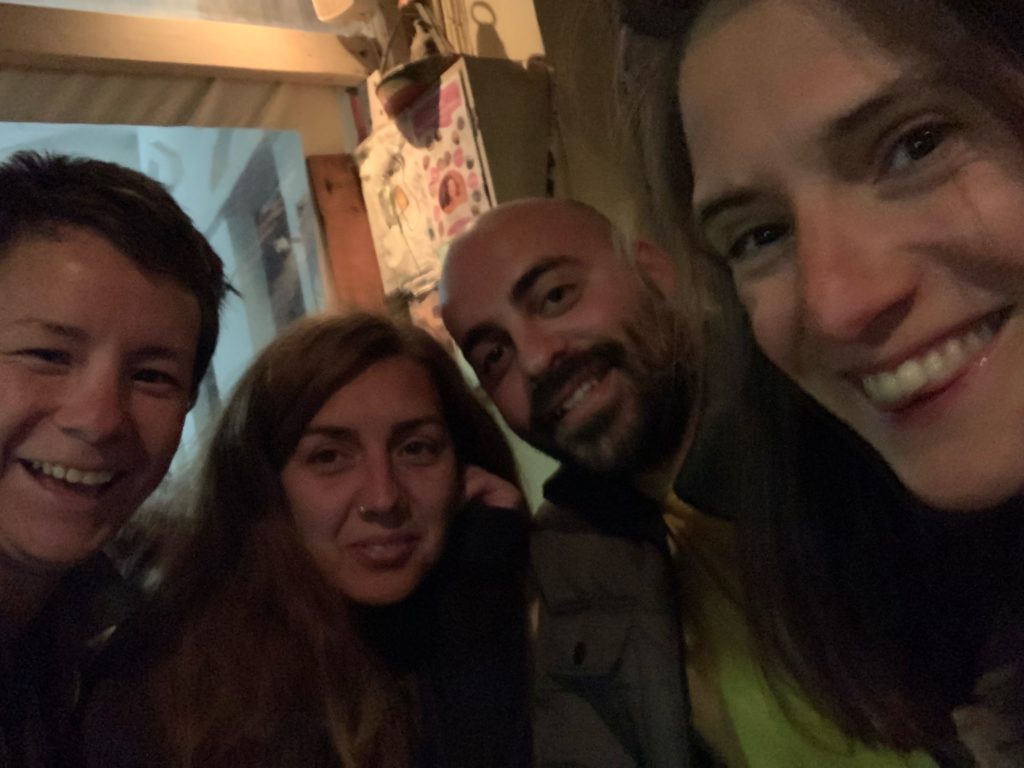
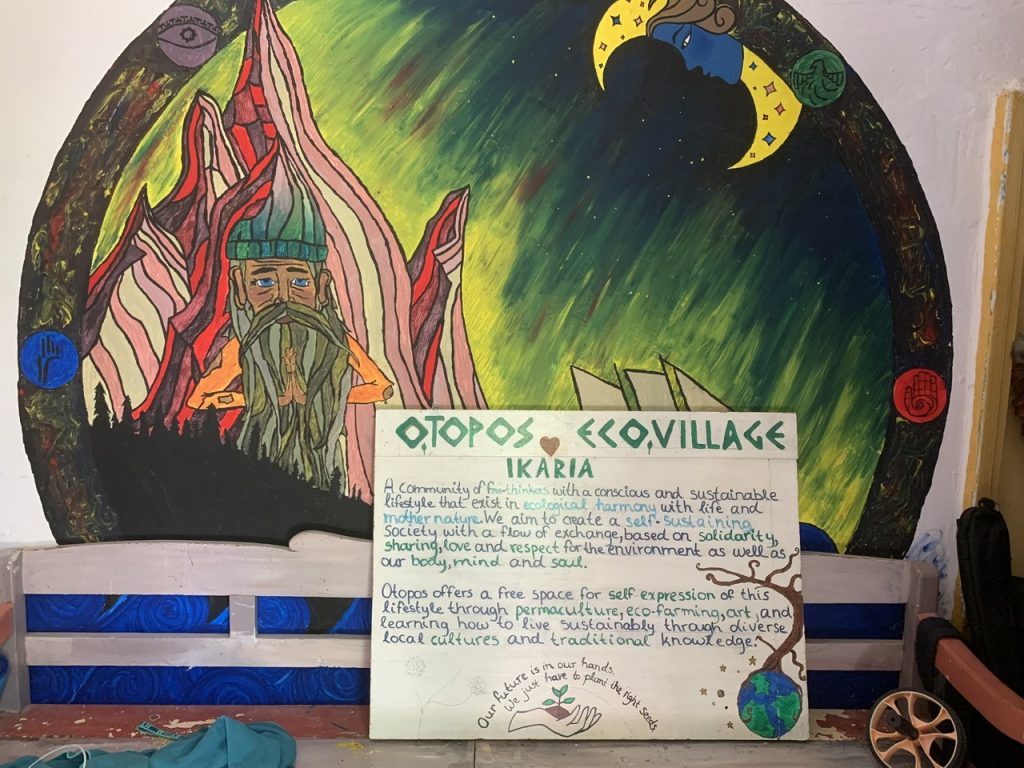
Otopus is a community in the making and we hope it develops and flourishes.
Ikaria, the island, is a community in itself and it made a big mark on us.
We know we will return to the island one day, Artemis permitting that is.
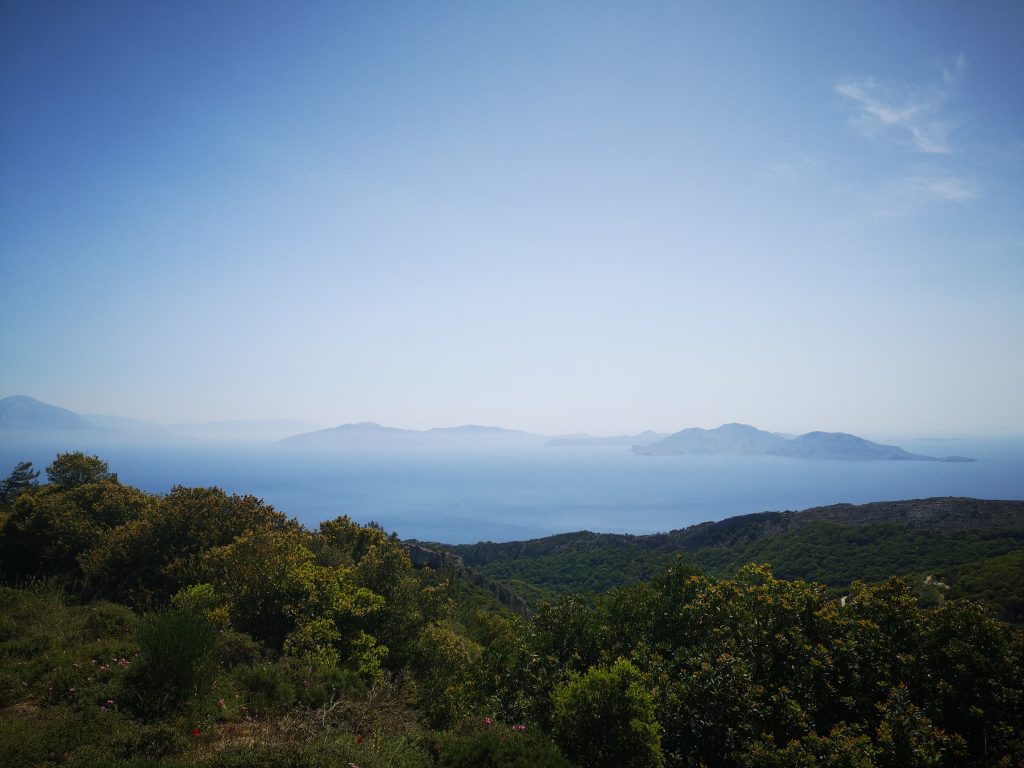
One thought on “Ikaria (via Samos)”
Comments are closed.